Program Overview
The online Illustration Degree prepares new and current illustrators for their careers as professional creatives through affordable, accredited classes. This Bachelor of Fine Arts (BFA) in illustration program is designed to produce graduates with the skills and attributes for tomorrow’s challenges: resourceful, adaptive critical thinkers who are prepared to excel in a professional environment, and whose work is based on effective research, problem-solving, and design methodology.
The Bachelor of Fine Arts (BFA) in Illustration program is a 120-credit program completed in 10 semesters by a student on a full-time schedule. This online illustration degree path is suitable for both aspiring high school graduates and adult learners looking to advance their skills or earn a degree.
Registration Ends Soon. Apply by April 14 for classes starting
April 28
Live Event:
Open House
Wednesday, Feb 12th, 4pm PT/7pm ET
Register Now!
 Duration: 3.3 years or less
Duration: 3.3 years or less Tuition: $300 per credit
Tuition: $300 per credit Next Start:
April 28
Next Start:
April 28 Registration Ends:
April 14
Registration Ends:
April 14
"While pursuing an online illustration degree, students focus on advancing their artistic aesthetic, technical and conceptual skills, expanding their view of visual languages and storytelling, and history and global impact of illustration and imagemaking.”

Jordon Schranz
Department Head of Illustration, Drawing and Painting Instructor
Program Curriculum
The Bachelor's Degree in Illustration is a 120-credit online program completed in 3.3 years or less. Credit transfer and part-time schedules available.
First Semester
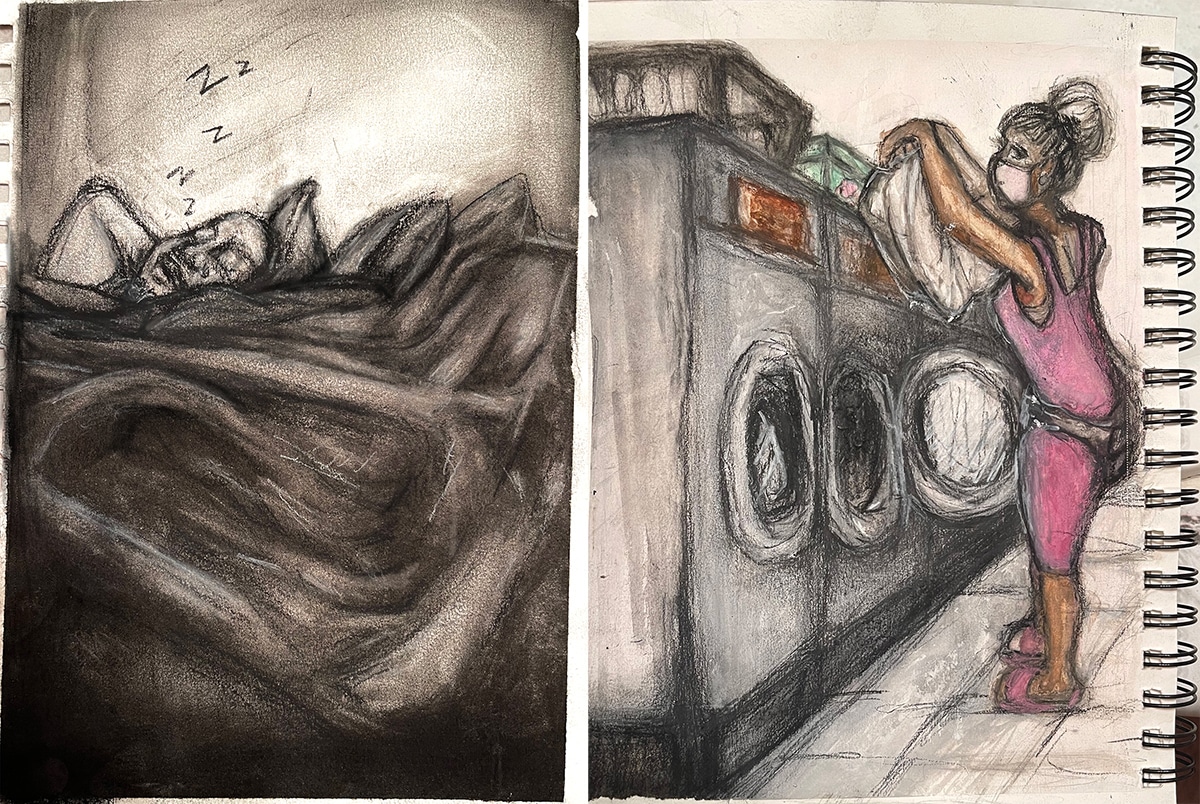
DES 111: Drawing I - 3 Credits
Many people are afraid to draw, but the truth is that drawing is not as hard as it seems. If you can relax, get your mind around the task, and begin to understand what you see, you can draw. In this online drawing course, you'll learn how to analyze what you see in the world around you and communicate it on paper. Guided by a professional artist, you will explore the critical concepts of line, mass, form, perspective, value, and composition, building a solid foundation for all your art and design work.
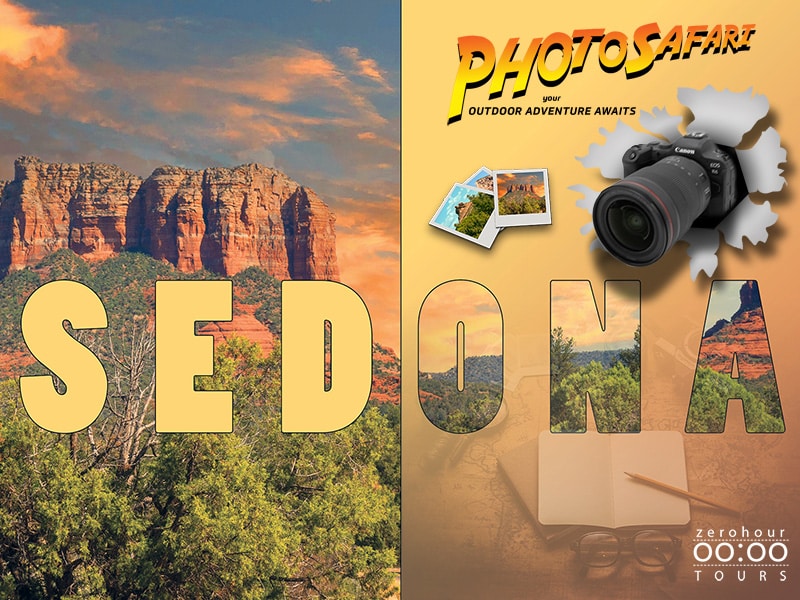
DES 121 Photoshop I - 3 Credits
Adobe Photoshop is the premiere image manipulation tool for print design, Web design, and photography. You can learn to tame this creative powerhouse of a program in this online Photoshop course. Working with a design pro, you’ll learn the best techniques for common Photoshop jobs including selecting and isolating objects, creating image composites, masking and vignetting images, setting typography, and improving images with retouching and effects.
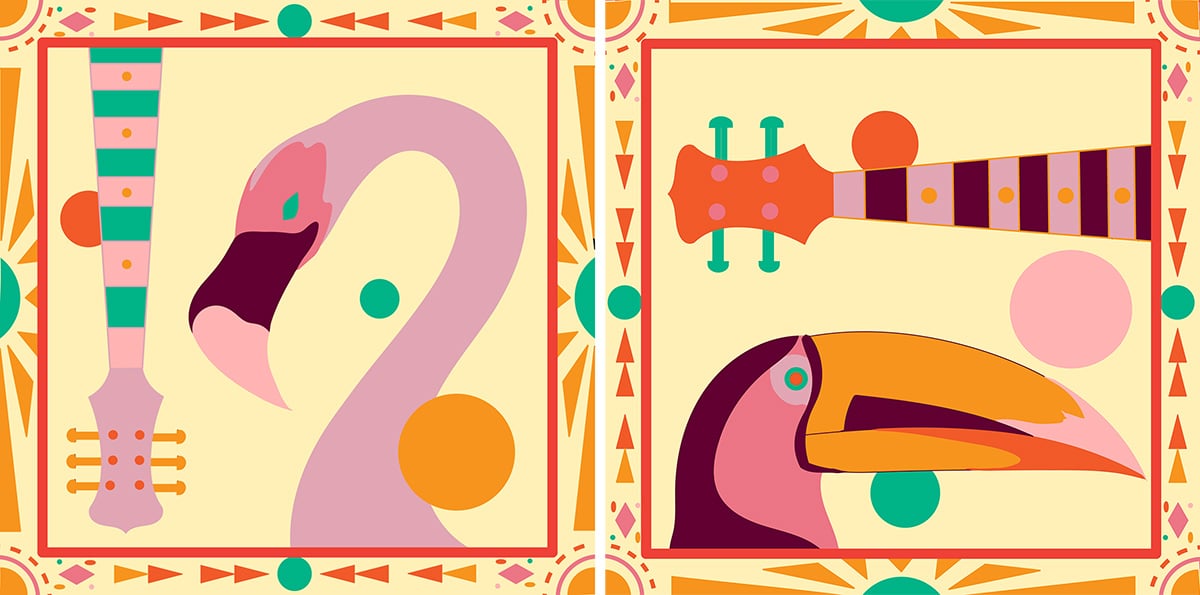
DES 141: Illustrator I - 3 Credits
Adobe Illustrator is a powerful and versatile tool for creating illustrations, logos, and graphics for print and the web. You can learn to produce detailed and scalable art in this online Illustrator course. Working with an expert instructor, you'll build a strong foundation, exploring shape tools, drawing tools, layers, the Pen tool (a lesson unto itself) as well as transformations/distortions, type tools, and modifying paths and shapes. Hands-on illustration projects include creating a robot, a series of album covers, a marketing postcard, an advertisement vehicle wrap, and a company logo.

GEN 104: English Composition - 3 Credits
Writing is an essential skill in almost any professional career you can name. In this online english composition course, students learn to become better readers and writers. Your goal is to produce clearer, more active sentences, better structured paragraphs, and more coherent and interesting personal and analytical essays. Throughout the semester, class discussions will use the critique of images and videos on art as a stimulus for writing. Students will develop two polished essays that will be presented for peer critique..
Second Semester
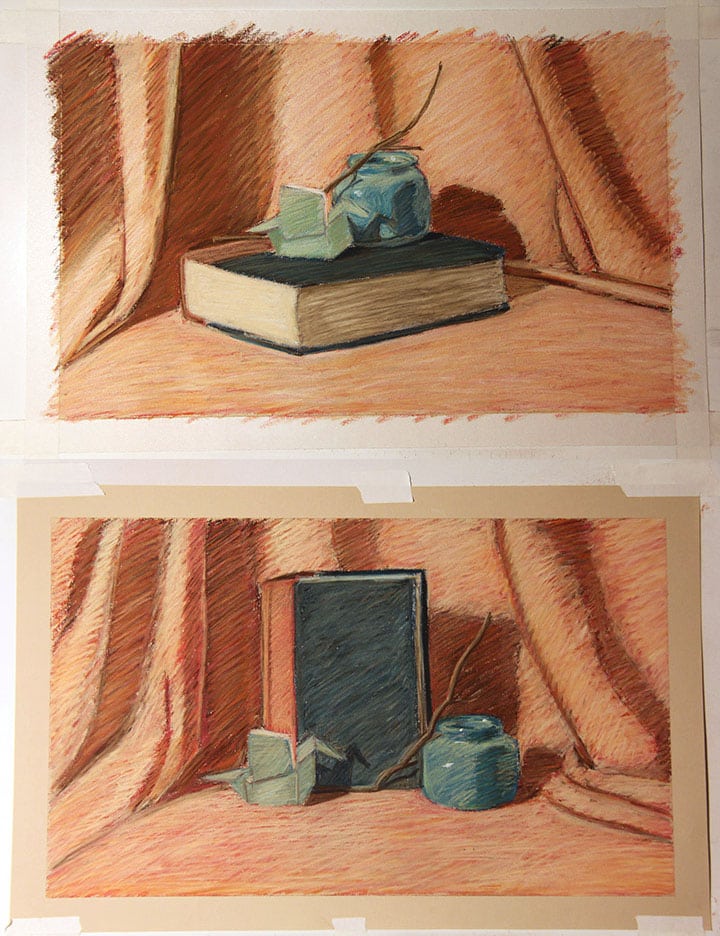
ILL 121: Drawing II - 3 Credits
You can learn to observe the world around you and draw it. In this intermediate drawing course for illustration majors, you will build on your foundation drawing skills through a wide ranging series of classical studies. You will explore the application of concepts like value, additive and subtractive mixing, and depth of field, learning how to handle different mediums like graphite, charcoal, and pastel, and tackle challenges like textures, highlights, and reflections. With an emphasis on the mixing, blending and combining color, the course will prepare you for your next level painting and drawing projects.
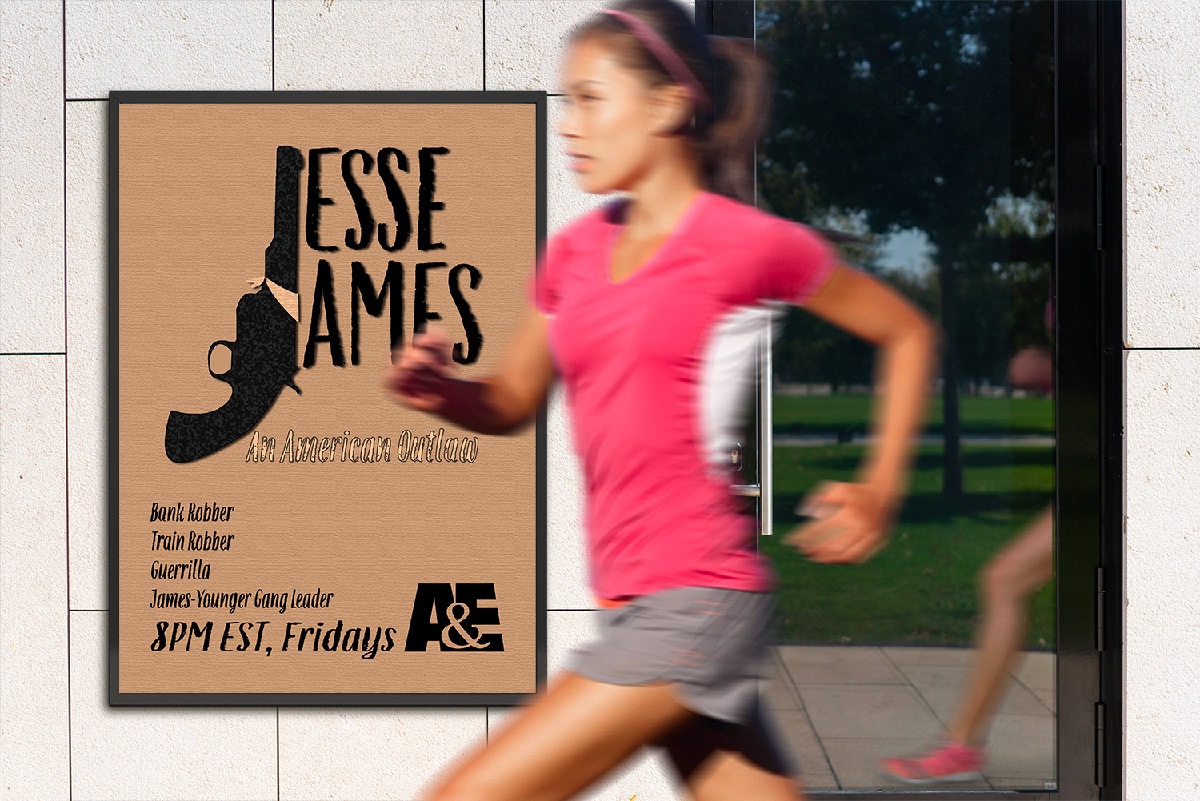
DES 106: Design Foundations - 3 Credits
Color is a fundamental medium for any artist or designer. Typography is what sets designers apart from other artists. Composition, literally the assembly or construction of elements, is the artful arrangement that guides the viewer's eye through an image. In this course, you will analyze everything from Grand Masters to Madison Avenue ads to tubes of toothpaste, and discover how color, type, and composition are combined to create effective and powerful visual communications. Class projects challenge you to build and apply your design skills in application to real-life creative scenarios.
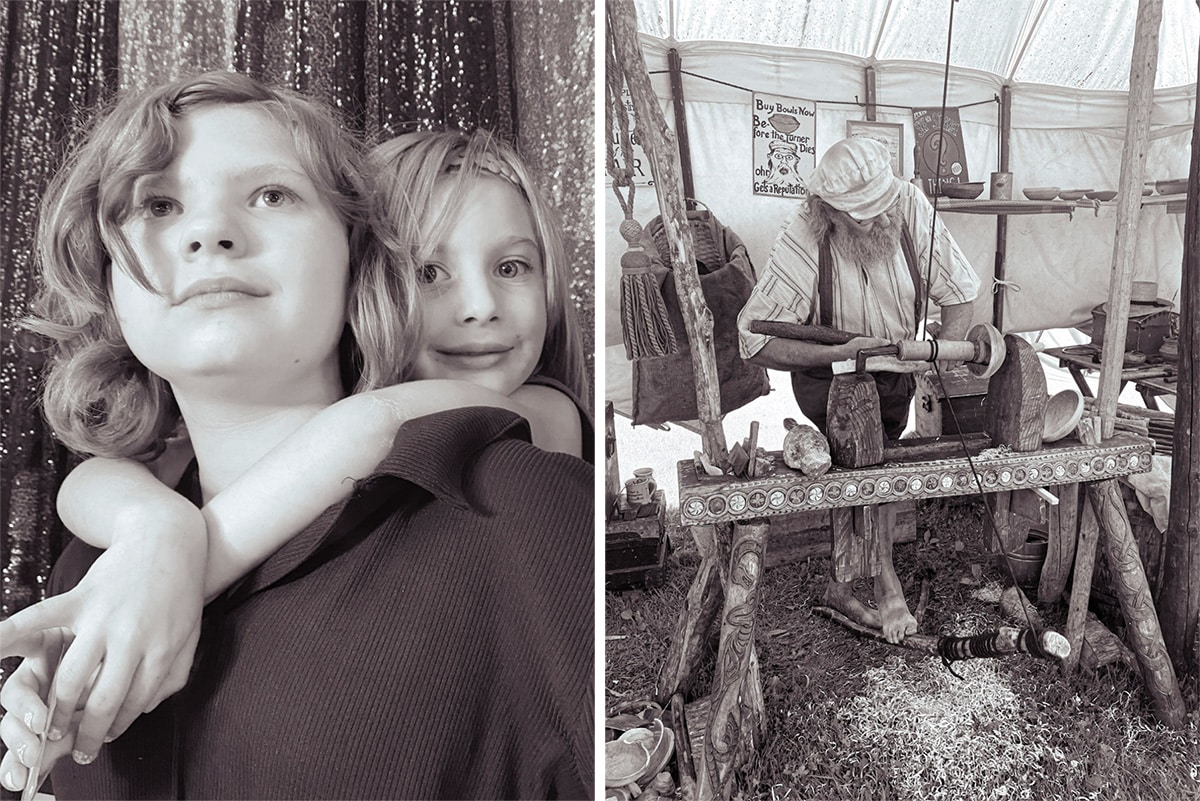
DES 151: Digital Photography I - 3 Credits
In this course, you'll build a foundation in fundamental photography techniques. You will gain control over your camera's manual settings, learning how to balance the elements in the Exposure Triangle (ISO, Shutter Speed, and Aperture/F-Stop. You will discover how to set White Balance appropriately, create depth of field, and capture motion. We will explore composition concepts to help you make your photographs more interesting and effective and equip you for the types of adjustments photographers make to adjust to different lighting conditions. To give you experience in some important genres, you will gain practical experience in shooting different kinds of portrait photographs and sports/motion photographs..

GEN 105: Computer Technology - 3 Credits
To succeed in today's digital workplace, it's imperative to understand how computers work. In this online computer technology course, you'll gain a foundation in modern computer systems. The course provides a foundation in the computer concepts that every working professional should know. Lectures explore the history and technical evolution of computing, with a focus on the development of hardware, software, and the Internet have developed. Course assignments challenge students to master concepts and relate their studies to relevant professional scenarios, including data representation, programming, and social issues in computing.
Third Semester
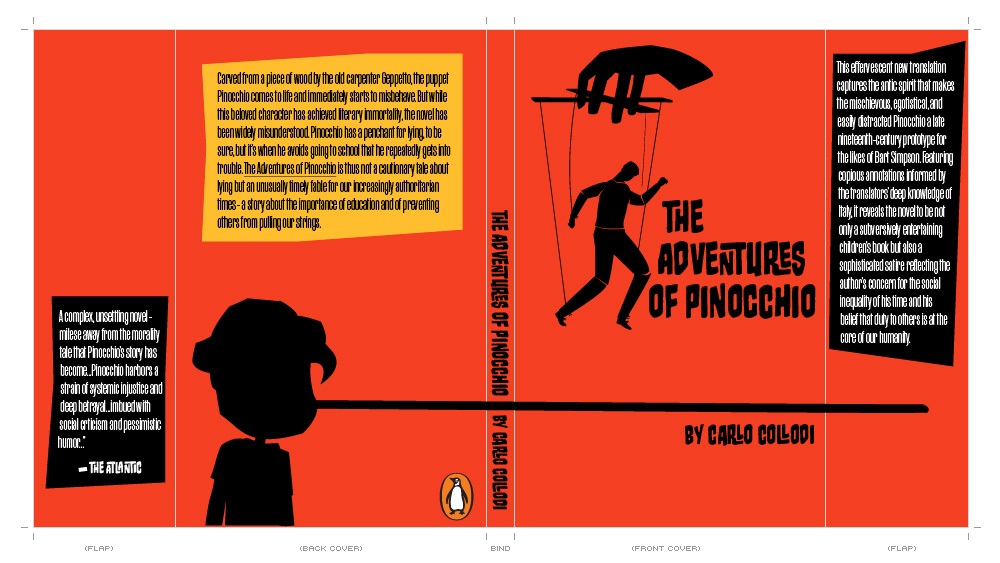
DES 204: The Study of Graphic Design - 1.5 Credits
Professional designers make choices informed by the present and the past. In this online design history course, you'll explore design movements from the early 20th century through today and gain experience in research, idea-building, and production of creative concepts. Working with an experienced art director, you'll learn how to use historical knowledge and cultural awareness as a springboard for your contemporary design projects.
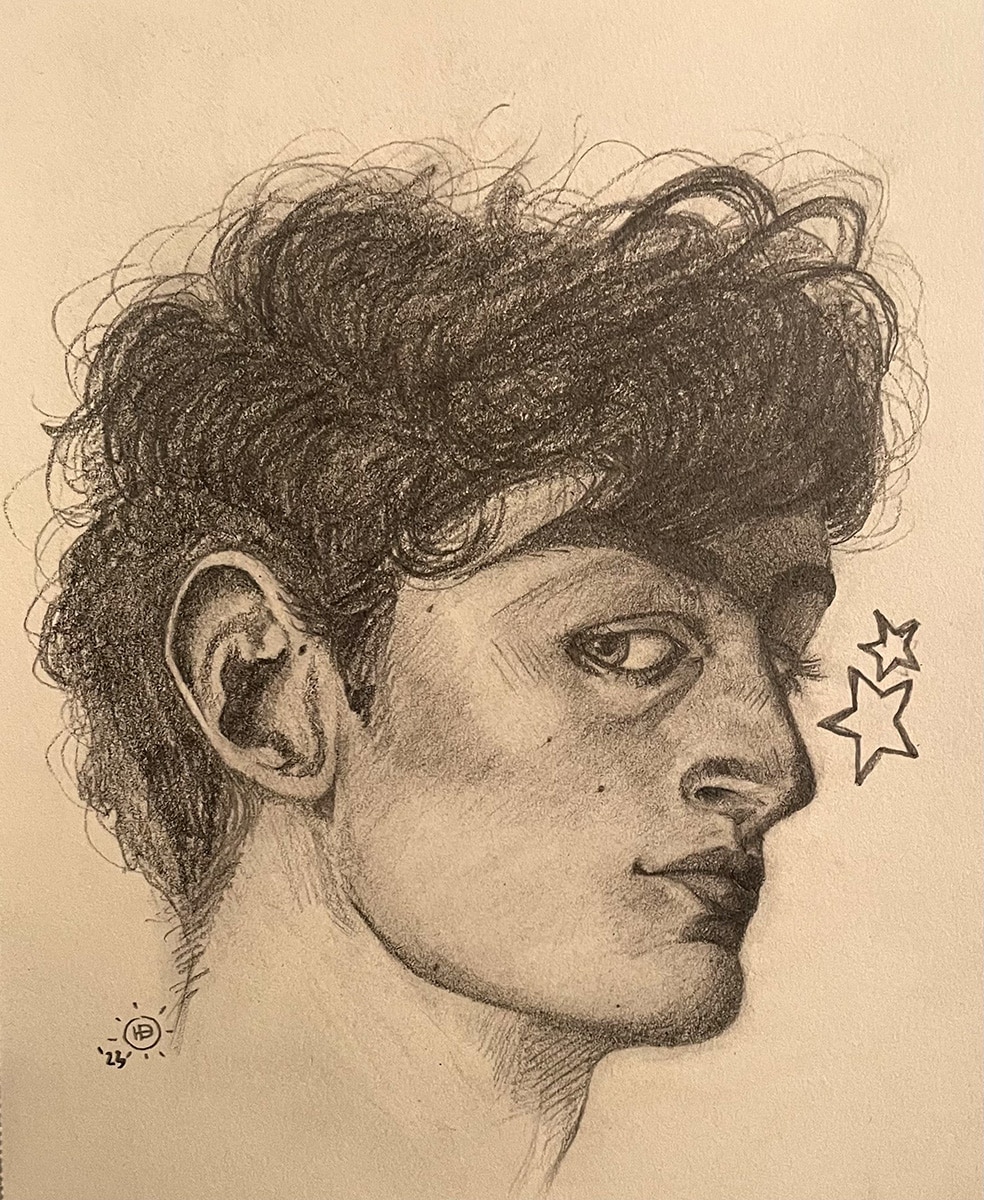
ILL 111 Life Drawing I - 3 Credits
Life drawing is a fundamental artistic challenge. Capturing the human figure in all its infinite, intricate variations requires both a mastery of technique and a thorough understanding of the body. In this online life drawing course, you'll make your figure drawings come to life with guidance with feedback from an expert instructor. Following traditional methods, you'll learn the standard measures and proportions artists use to achieve naturalistic and expressive figure drawings. The course builds progressively from the fundamentals to the challenges of portraiture, three-dimensional form, composition, and expression.
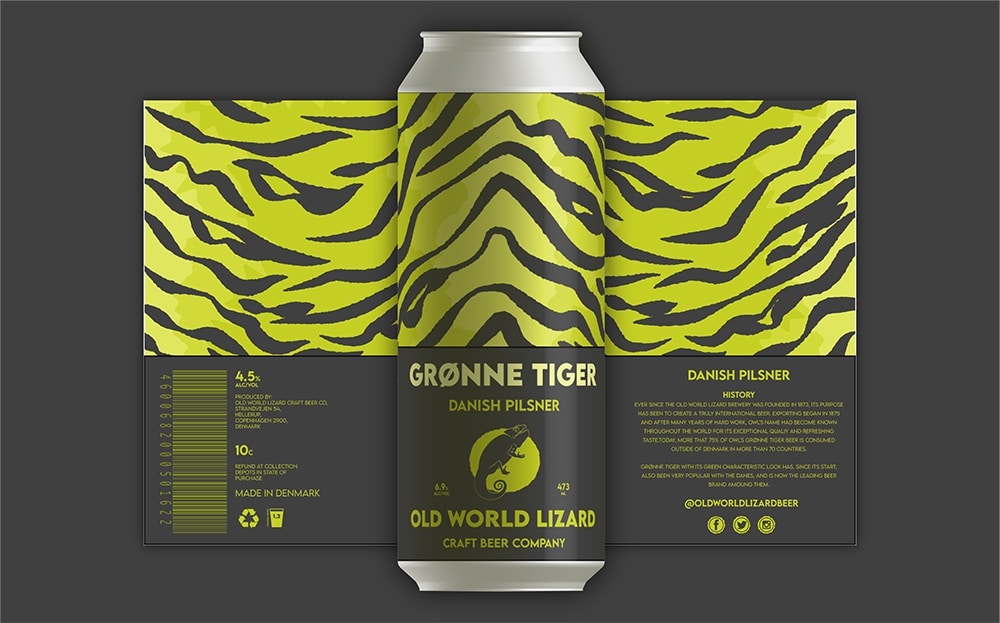
ILL 142: Illustrator II - 3 Credits
Adobe Illustrator puts any conceivable vector art objective at your fingertips. But most digital designers only scratch the surface of Illustrator. To make a splash, one must delve deeper. In this advanced online Illustrator course, you'll create photo-realistic illustrations, complex patterns, rich designs, and learn how to accelerate your efforts with helpful workflow features. Working with an expert instructor, build on your existing Illustrator skills and tackle high-end projects with depth, dimension, and wow-power.

GEN 204: Intro to Marketing - 1.5 Credits
Today's business clients are looking for designers who can apply their creative talents in ways that enhance strategic business goals. In this online introductory Marketing Design course, you'll learn tried-and-true marketing concepts and explore how they affect the design process. You'll gain a solid grasp of the marketing process, understand key terms and concepts that every marketer uses, and pick up smart questions to ask in client meetings.
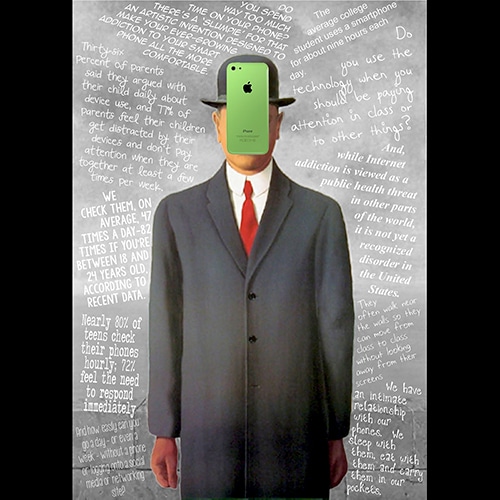
GEN 106: History of Art - 3 Credits
What essentials do artists and designers just need to know? In this online art history course, you'll build a foundation in art and the artists who created it. You'll explore profound themes that have concerned artists for centuries: nature, the human body, society, religion, and politics. Through engaging lectures and projects, you'll learn how to identify the mediums, materials, and techniques artists use and discuss the styles of important artists, art movements, and historical periods from antiquity through the mid-20th century.
Fourth Semester
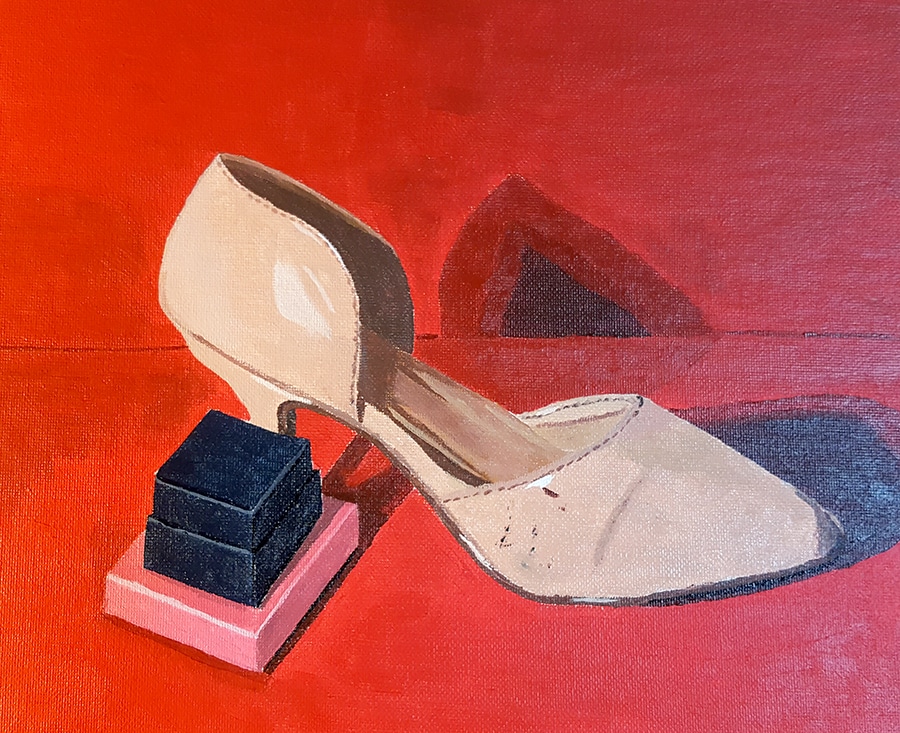
Ill 204: Painting I - 3 Credits
For centuries, artists have used paint to represent the physical world. Now you too can learn how to paint online. In this online painting course, you'll learn a traditional approach to oil painting or acrylic painting. Working with a professional artist, you'll study a time-honored approach to painting that enables you to capture proportion, perspective, and lighting in the world around you. You'll learn how to build a foundation with preparatory sketches and underpainting, find out how to mix your paints correctly, and gain control over value through monochromatic painting and color studies.
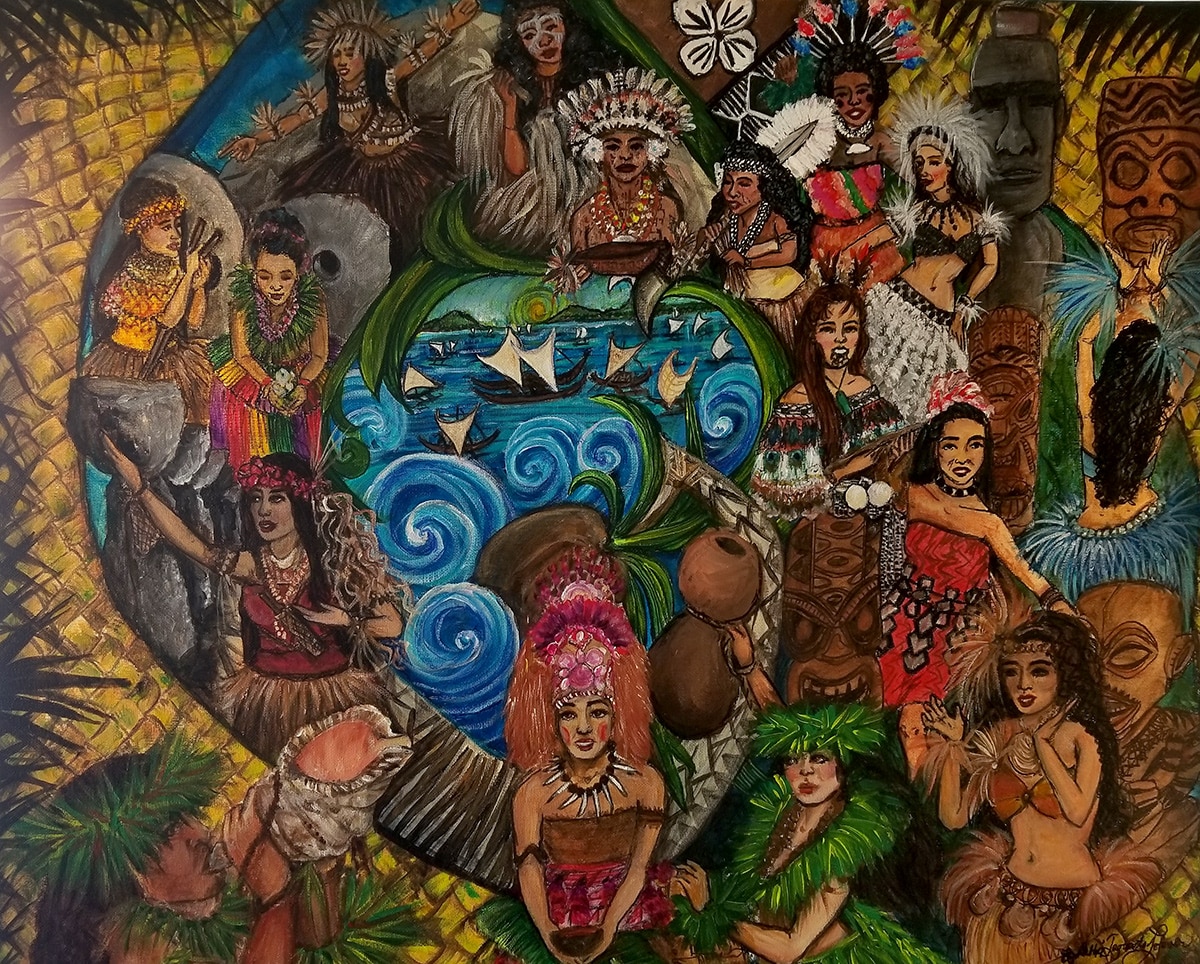
ILL 212: Life Drawing II - 1.5 Credits
Life drawing is an endless, fascinating challenge for an artist. In this online advanced life drawing course, you'll learn how to observe and capture the clothed human figure and explore basic techniques for all figure drawings. Working with a trained illustrator, you'll learn essential concepts in form, structure, and motion as you address subjects that interest and engage you. Discover the seven functions of the line, constructing scenes, and incorporating color.
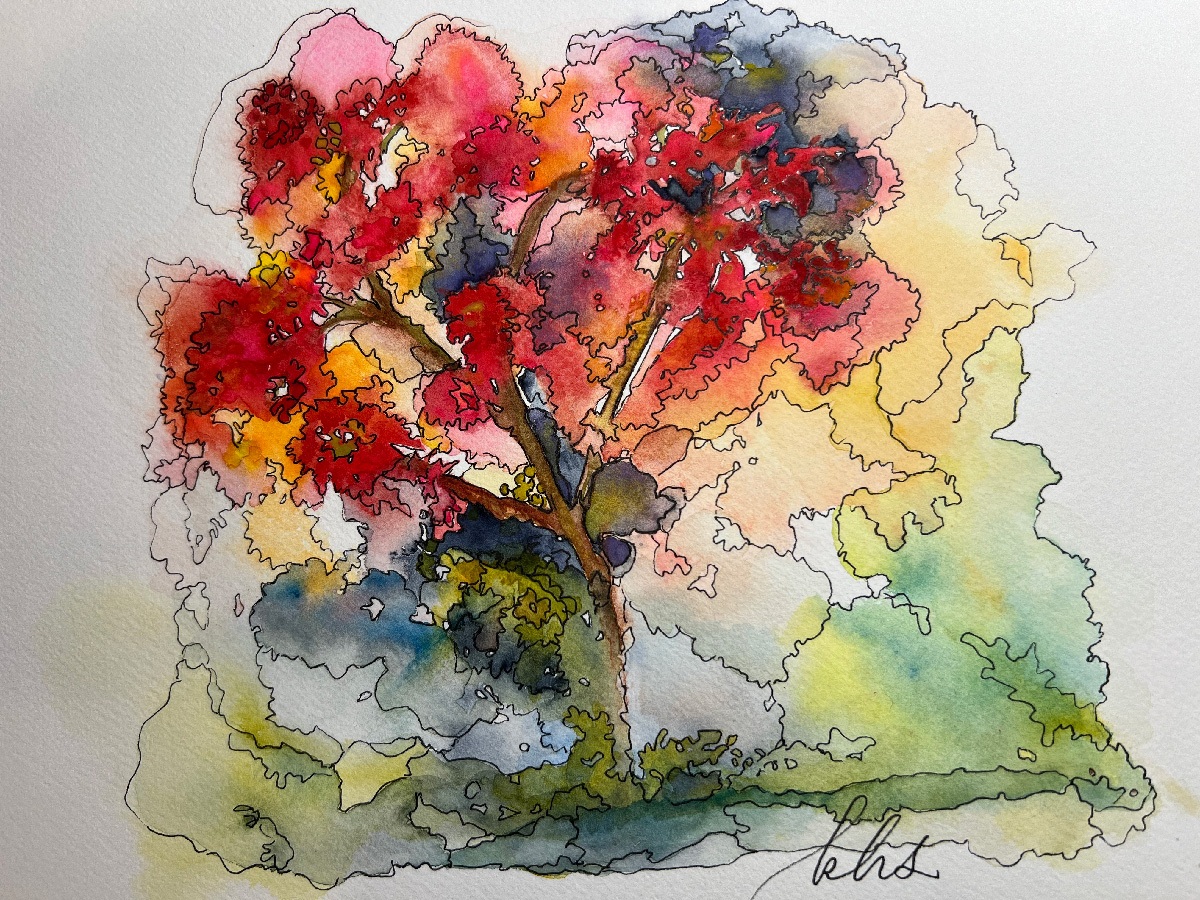
ILL 208: Watercolor - 1.5 Credits
Watercolor has a rich tradition dating back centuries, and is still enjoyed by today's artists for its unique color effects and wide range of techniques. In this intensive online watercolor course, you'll explore traditional techniques including various washes, glazes, scumbles, resists, and more, getting feedback from a professional artist to help you hone your skills and perfect each project. The class involves creating a series of complete watercolor paintings.
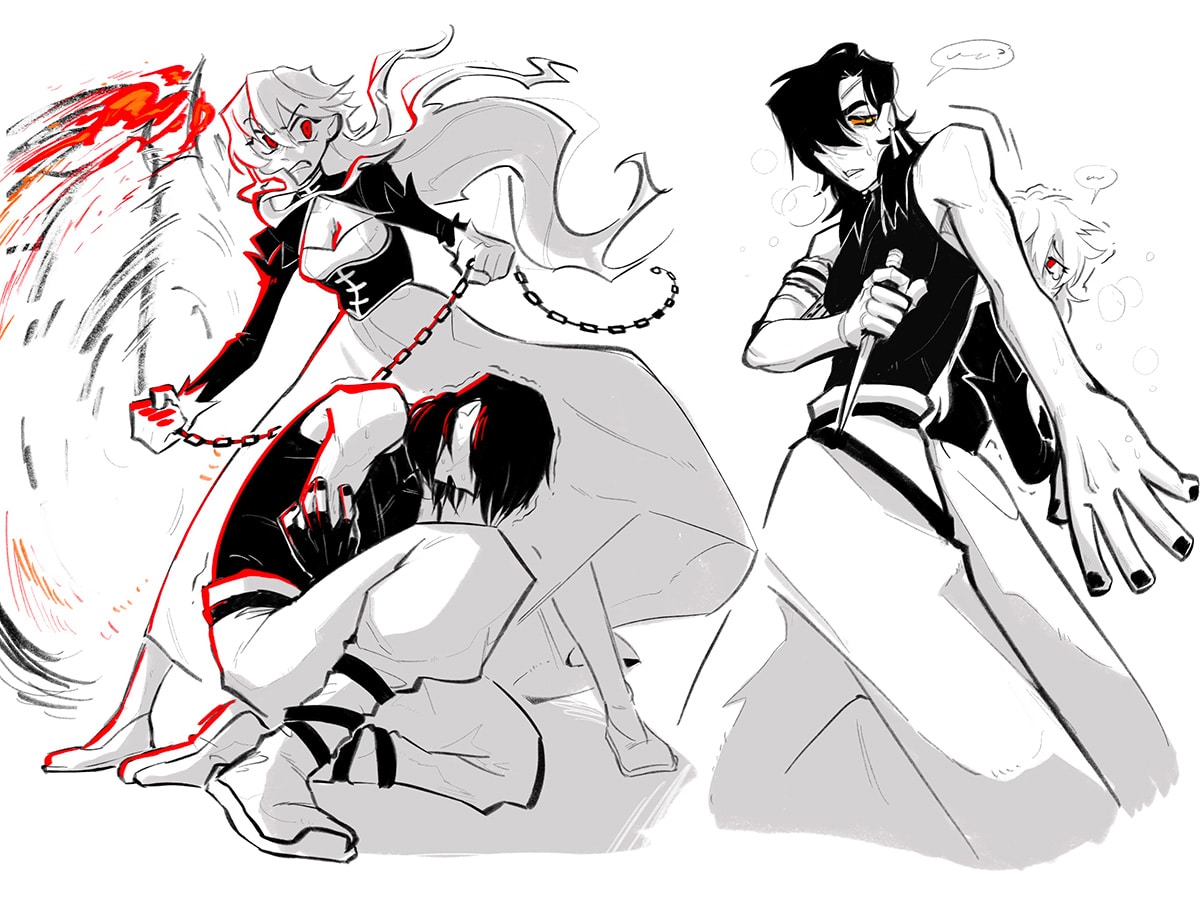
ILL 206: Cartooning and Sequential Art - 3 Credits
The great cartoon artists know how to tell a story with one image. In this online cartooning course, you'll explore concepts for visual storytelling. Working with a veteran cartoonist, you'll discover how master cartoonists tell stories simply and effectively and apply what you learn in practical projects that help you grow your sequential art portfolio. Course topics include panel transitions, time and motion effects, character studies, speed drawing, and polishing and presenting your work to publishers.

GEN 107: General Psychology - 3 Credits
An understanding of human psychology is essential for any designer. In this online psychology course, you'll build a foundation in theories of the mind. The course focuses on the biological and environmental bases for human behavior, including motivation, emotions, states of consciousness, learning, and personality. Students examine classic theories and theorists in psychology and complete research- and reflection-based projects.
Fifth Semester
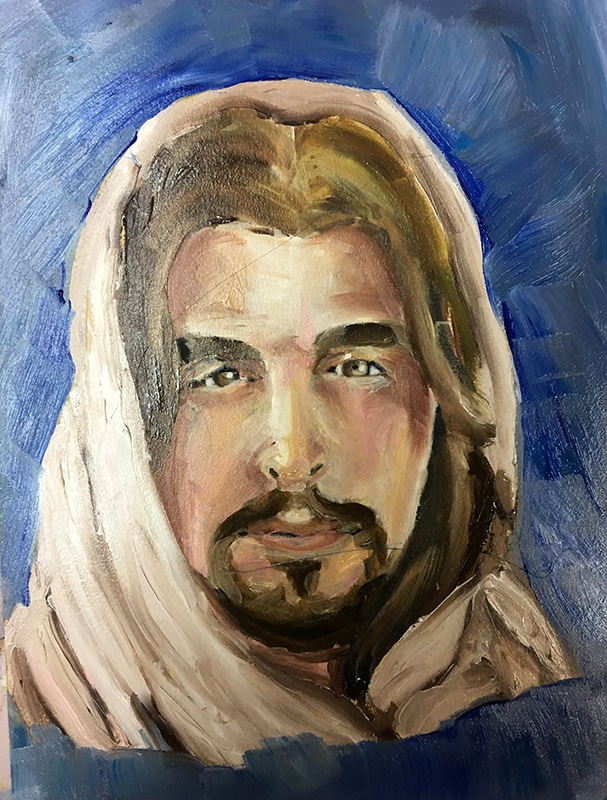
ILL 207: Portrait Painting - 1.5 Credits
Portraiture has a rich history. In this online portrait painting course, you can learn time-honored techniques for portrait painting in oil. Working with an experienced painter, you'll utilize your knowledge of anatomy, learning how to construct a painting from drawing to underpainting to final work. Along the way you'll learn essentials for lights and darks, flesh tones, and laying on color. Helpful critiques on your drawings and paintings will help you improve your techniques and build your style.
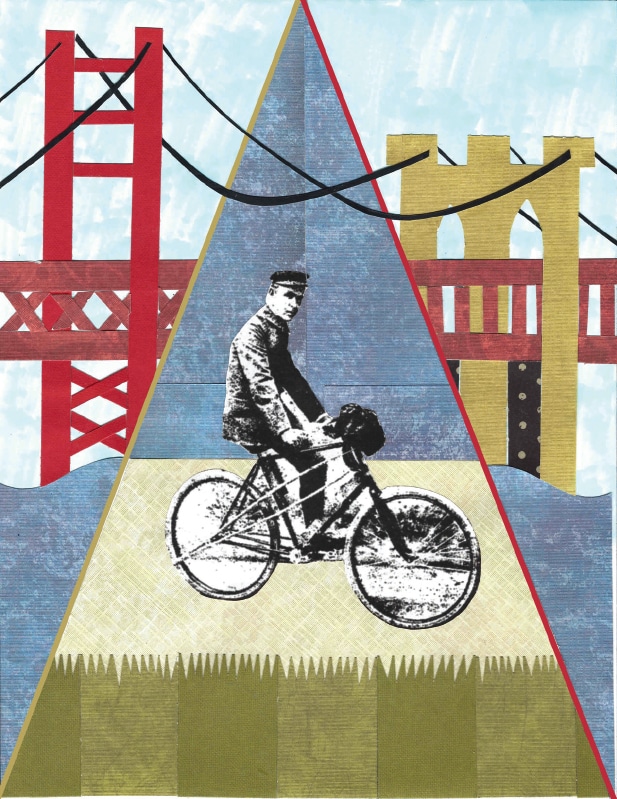
ILL 209: Commercial Illustration - 3 Credits
Explore business applications for your illustration work, from editorial and commercial to advertising and marketing. In this online commercial illustration course, you will explore different genres of project work, learning how contracts and copyright work and how to represent yourself professionally and effectively.
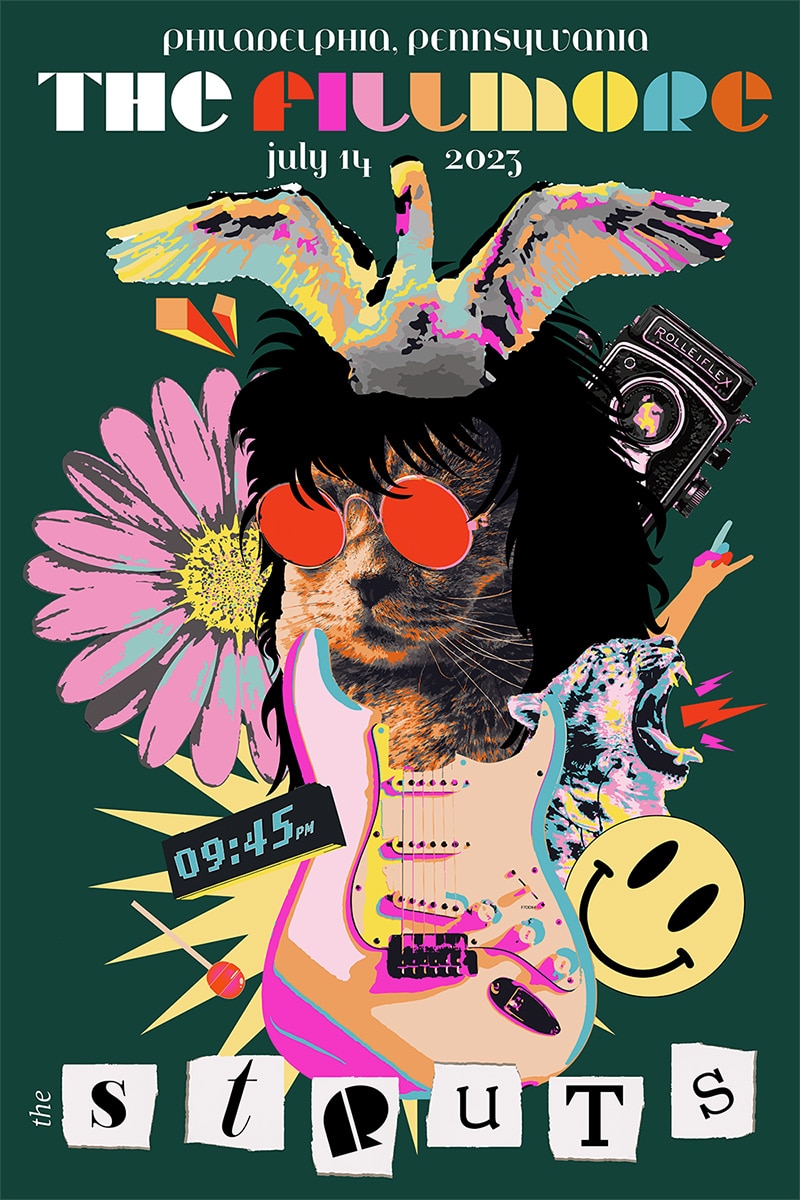
ILL 202: Digital Illustration II - 3 Credits
Digital illustration is a challenging and expressive area of graphic design. With Adobe Illustrator, you can develop your unique personal style as an artist. In this online advanced digital illustration course, you'll learn professional illustration and Adobe Illustrator techniques for communicating your creative concepts. Working with a pro illustrator and designer, you'll learn approaches for creating editorial illustrations, icons, retro poster designs, 3D illustrations, and restaurant identity designs.

GEN 206: Creative Business - 1.5 Credits
The course provides essential preparation for finding employment opportunities in your creative industry. You will learn how to define a personal career path, break down the job market, and define their goals, talents, and ideal job. This course explores different ways to brand yourself as a professional creative, discussing tips for resume and portfolio preparation, self-promotion, marketing, client searches, responding to leads, interviewing, and presenting work and/or campaigns.

GEN 207: Copywriting - 3 Credits
Every ad designer must grasp the basics of persuasive copywriting. In this online copywriting course, students will study how text and images interact in effective ad campaigns, learning how to write and edit ad copy for print and digital advertising media and turn written ideas into visual expression. Working with a professional writer and editor, you'll hone your copywriting skills on realistic projects.
Sixth Semester

DES 222: Photoshop II - 3 Credits
How well do you know Adobe Photoshop, the industry-standard imaging app? In this advanced online Photoshop course you'll transcend your current skill set with vector illustration techniques, photo-realistic painting, high-impact typography, and professional editing methods that preserve the editability of your original images. Working with a Photoshop pro, you'll build proficiency with the Pen tool, Adobe Color, Smart Objects and Filters, and more.
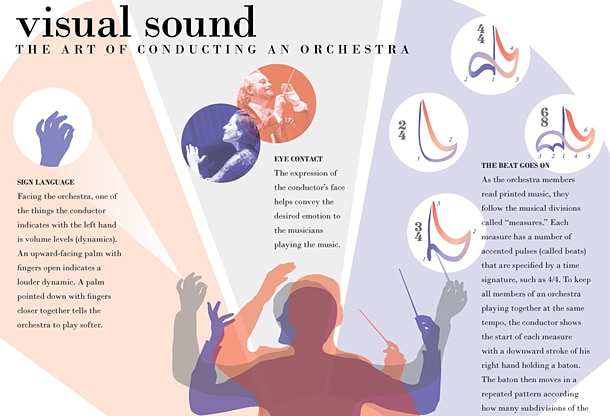
ILL 210: Technical Illustration and Infographics - 3 Credits
Information design is the practice of creating visual presentations that communicate information for the purpose of instruction. In this online infographics course, you'll explore approaches and concepts in technical illustration and infographics. Working with a skilled illustrator, you'll learn methods for creating instructional illustrations that communicate clearly and effectively.

DES 102: Typography II - 3 Credits
Typography, technology, and culture are intertwined. Type has the power to communicate meaning and mood through its quirks and beauty, its history and diversity. In this advanced online typography course, you'll learn advanced concepts in typography, building your portfolio through hands-on projects. You'll experiment with type fusion, learn the details of text layout and information hierarchy, create a visual identity for product package and a civic authority, and even design your own currency.
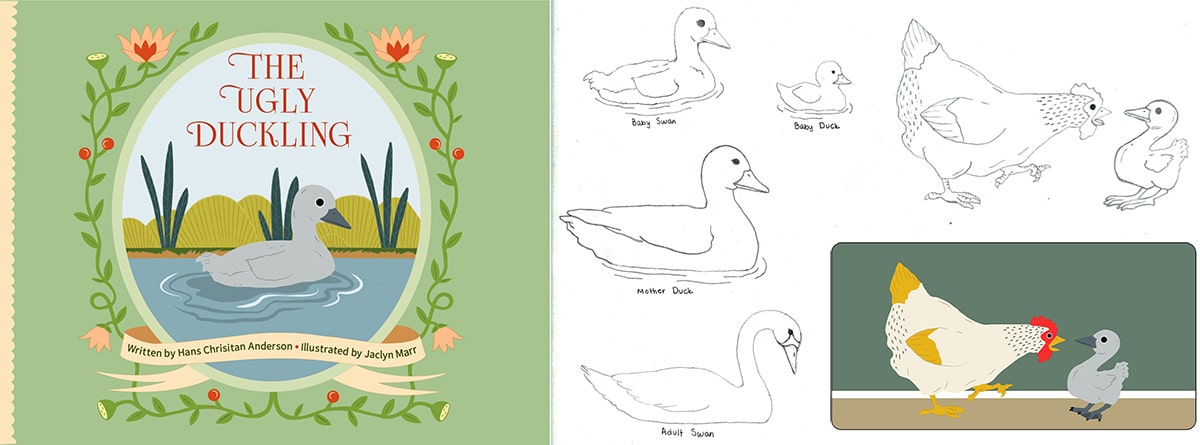
ILL 260: Illustration Capstone and Portfolio Review - 3 Credits
The Illustration Capstone and Portfolio Review class offers an opportunity to develop a multifaceted portfolio piece and hone your creative work into a polished presentation for future clients and employers.The Illustration Capstone Project provides students the opportunity to complete a multidimensional illustration project in three stages, working closely with a department head. A children's book publishing and promotion project will challenge students to demonstrate their proficiency in key aspects of the Illustration program.Students participate in Portfolio Review in weeks 9-15 of the semester. This provides students the opportunity to gather and develop a portfolio of work and present it to faculty and classmates for feedback.
Seventh Semester
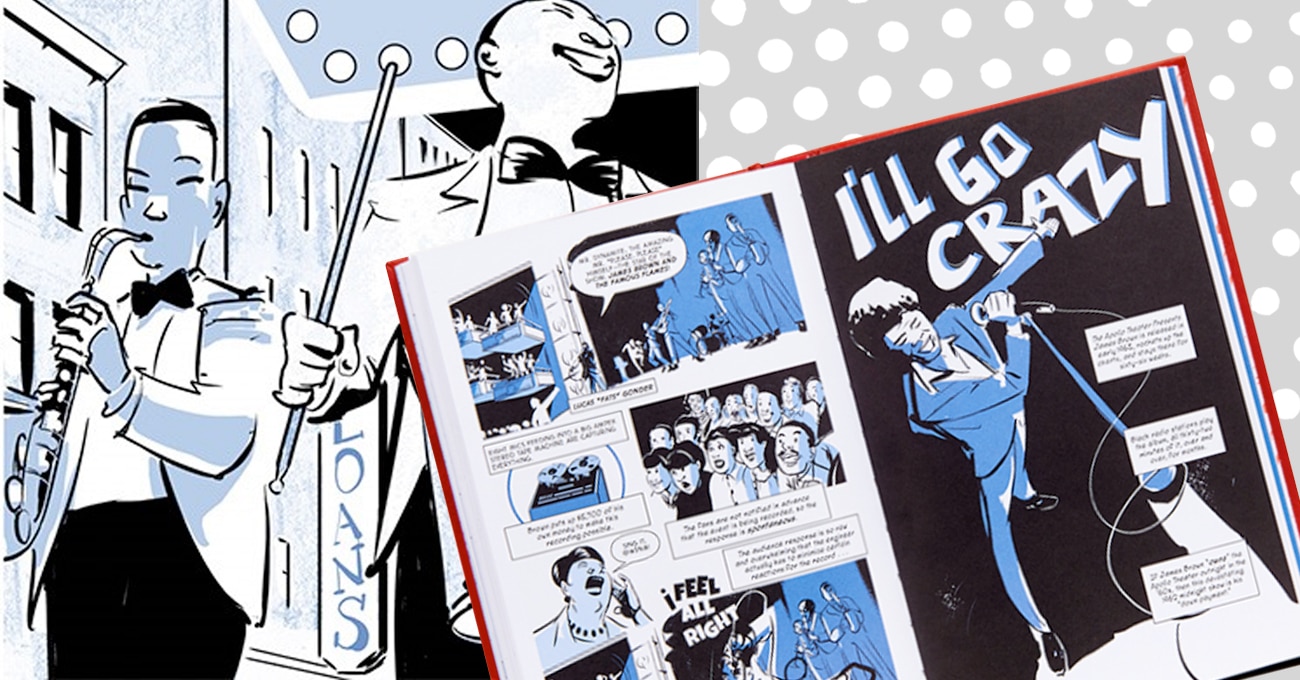
ILL 360: Project Planning and Creative Workflow - 3 Credits
What kind of illustrator do you aspire to be? In collaboration with your faculty mentor you will review and analyze your current portfolio, research industry trends, identify the type of work you want to create during the remainder of your program of study that could be for commercial use or fine art imagery, and enhance your creative workflow while producing new portfolio pieces. This multi-faceted course has been developed to provide a path for your academic and professional success.
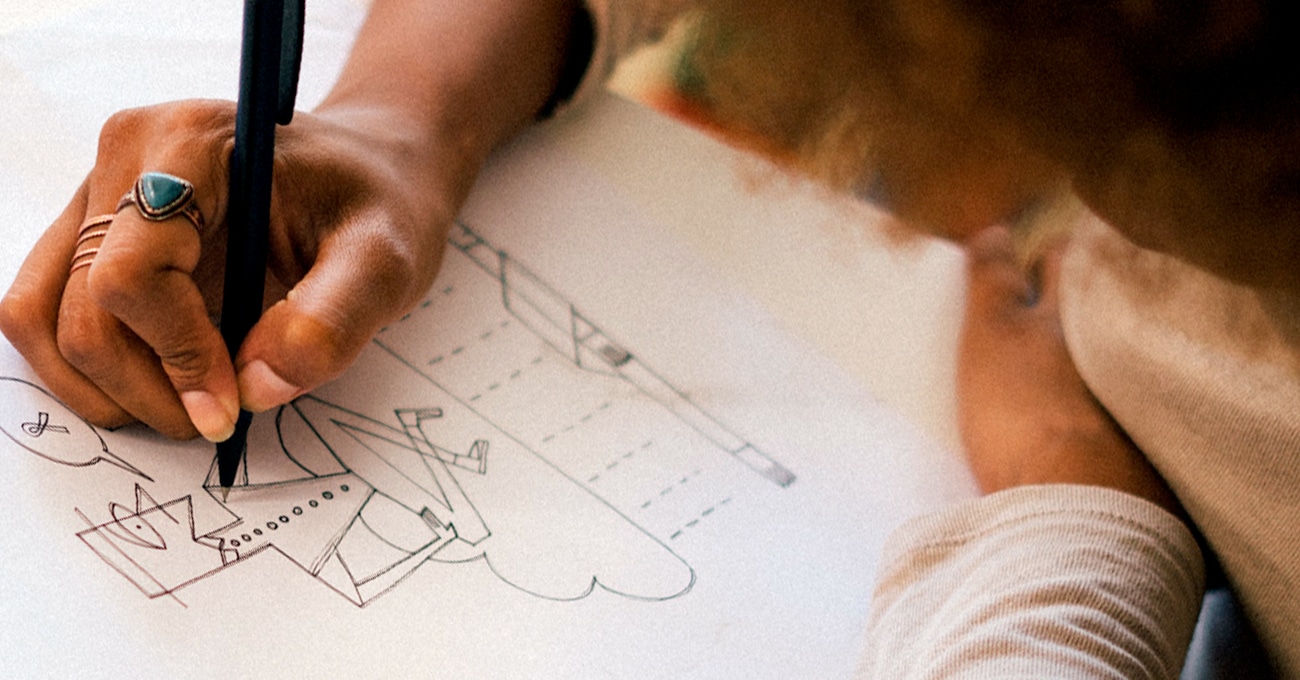
ILL 301: Drawing and Visualization - 3 Credits
Now it’s time to “dig deeper” and enhance your illustration skills and creative voice by exploring advanced illustration concepts including a focus on visualization, dramatic, reflective, and atmospheric lighting, convincingly and creatively representing objects and/or the human figure in space, and develop environments in linear perspective. Building upon your technical and conceptual skills you will also delve into developing imagery based upon your own imagination.
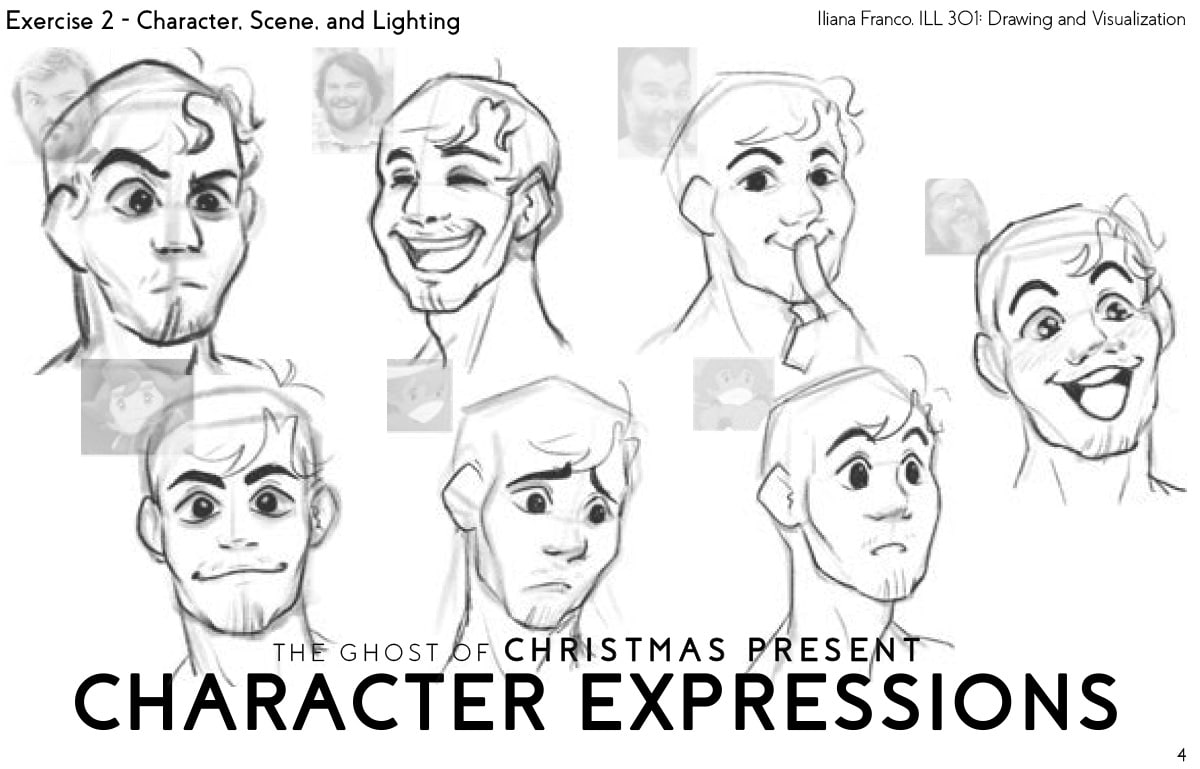
ILL 302: Visual Storytelling and Storyboarding - 3 Credits
Professional illustrators are frequently hired to create visual narratives and storyboards for a variety of media and purposes such as publications, books, sequential art, ad campaigns, exhibitions, and film/television. This course provides you with the opportunity to advance your storytelling ability and produce well-conceived and compelling visual stories and high-quality storyboards for a variety of applications.
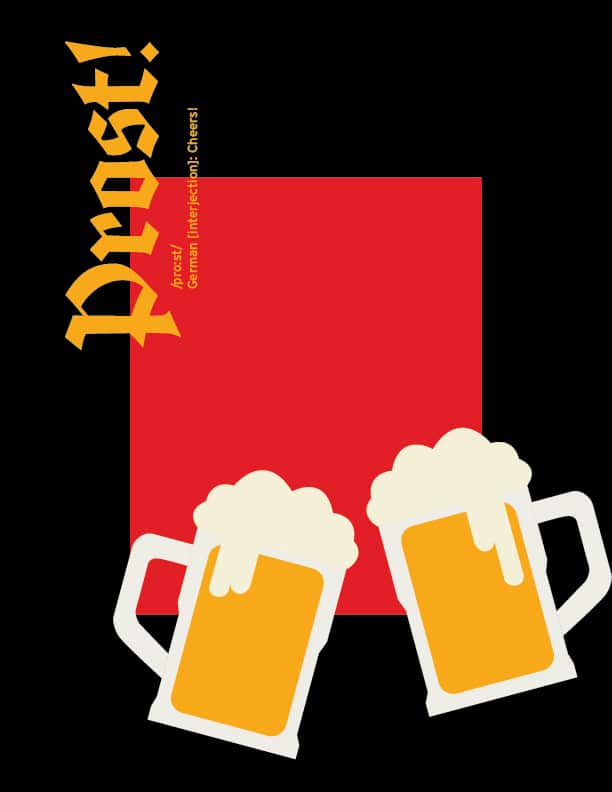
GEN 409: Cultural Anthropology - 3 Credits
As a creative professional, you will communicate ideas to complex and diverse audiences. This course explores multiple theories of cultural anthropology that inform the way we understand identities and societies. Areas of focus include language and communication, economic and political systems, ethnocentrism and culture, kinship and descent, marriage and family, gender and sexuality, race and ethnicity, religion and belief systems, the effects of colonialism and industrialization, and the impact of globalization on culture.
Eighth Semester
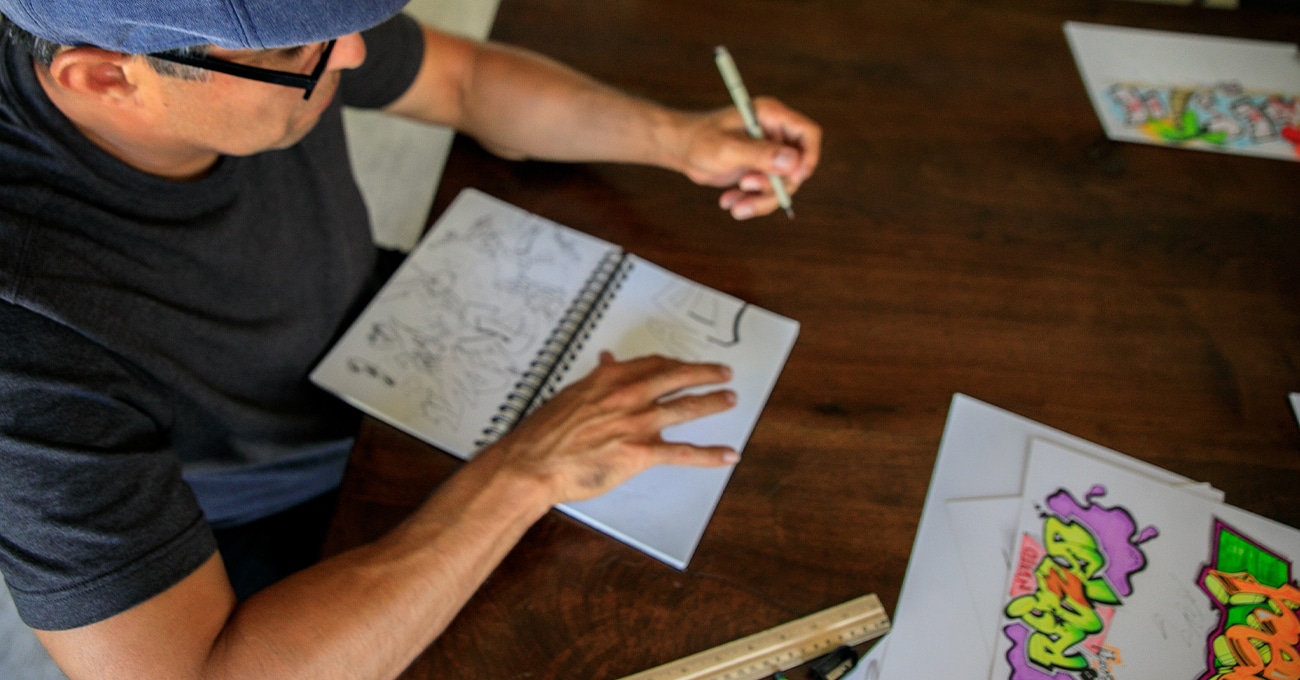
ILL 304: Special Topics - 3 Credits
Students will enhance their ability to produce compelling illustrations and artwork in alignment with their professional and creative goals. In collaboration with the instructor, students will select or “spec out” and complete multi-faceted projects that support their portfolio goals. The course instructor will serve as the client, and class grades will be based not only on the quality of work but also on the ability to research a concept, meet deadlines, synthesize drawing and artistic principles, and effectively present professional level work.
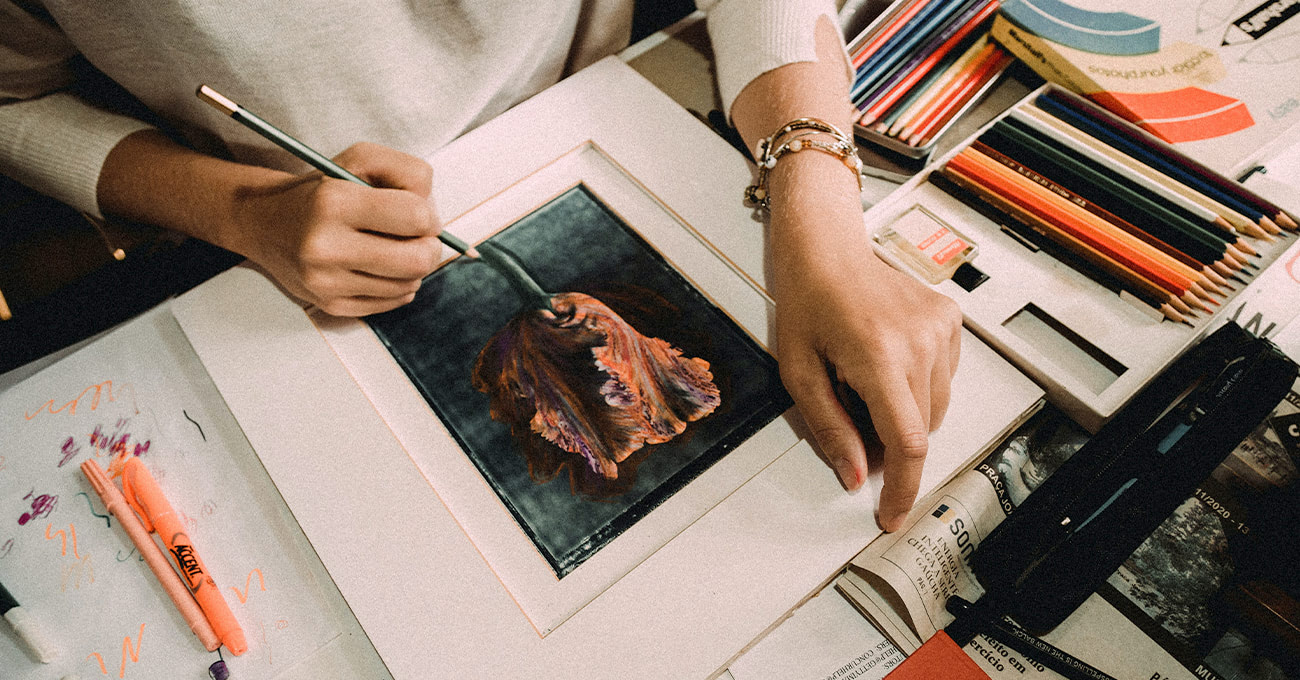
ILL 322: Figures and Environments - 3 Credits
Students will focus on advancing their ability to convincingly represent the human figure and characters in space, within multiple environments while considering historical context. Concepts to be addressed include anatomy, gravity, weight, movement, light, color, and the history of representing the figure. Additionally, students will explore architecture, structural elements, and scale with an emphasis upon developing compelling and vivid environments.

ILL 333: Mixed Media Exploration - 3 Credits
Time to get messy and have some art-making fun! In this course, you will explore, experiment, and expand your ability to conceptualize and develop compelling and innovative images through the use of technology, digital compositing, traditional drawing and/or painting techniques, mixed media, collage, and/or other art-making strategies. You will stretch your creative skills, discovering new avenues for your art and illustration, inspired by the concepts and strategies used by great artists past and present.

GEN 402: Communication* - 3 Credits
Engage in the process of examining, analyzing, summarizing, and evaluating communication strategies and theories. Students will demonstrate how to apply various communication principles through speech, including the consideration of the communication process, receiver perceptions, and verbal and nonverbal communication, as well as listening. The theory of communication will be explored in regard to engaging small groups, the public, and a variety of organizational contexts. A broad range of communication venues and considerations will be evaluated including interviewing, mass media, the use of new technologies, the influence of relationships, body language, intercultural perspectives and gender, as well as how to address conflict and negotiations.
Ninth Semester
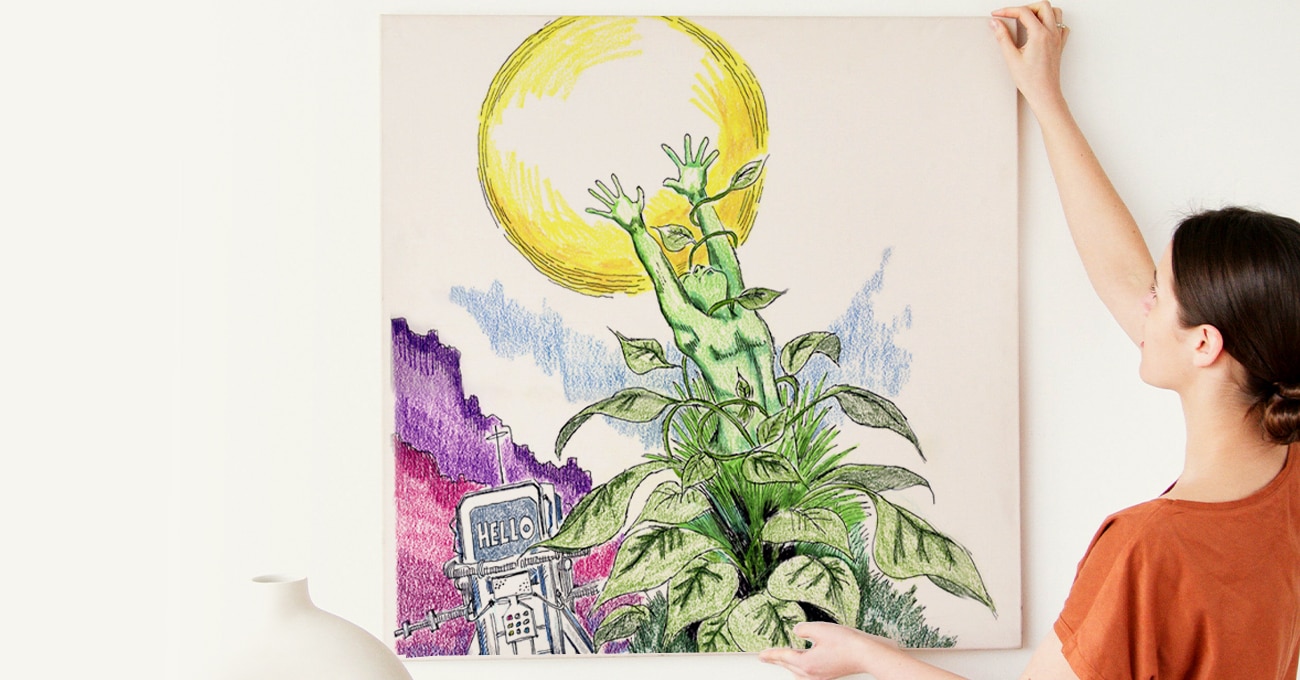
ILL 404: Senior Project - 3 Credits
Follow your creative passion by conceiving, producing, and promoting an innovative collection of images in alignment with your artistic and professional goals. This is your opportunity to focus on creating a unique cohesive series of images informed by research as well as instructor and peer feedback. During this course you will advance your ability to produce, promote, and present your unique artistic work. At the conclusion of the course, you will exhibit your creative work through a website, social media, self-published book, exhibition, or other physical or virtual venue, as well as share it with your instructor and your peers.

ILL 412: Global View of Illustration - 3 Credits
Contemporary illustrators and fine artists must be prepared to produce work that appeals to a global audience. You will research illustrators and creative image makers who produce international work. Based upon your findings, you will develop and produce multi-faceted illustration projects focused on gaining the attention of an international audience. By considering cultural differences, you will develop the cultural sensitivity required to be a global creative and the skills to effectively research compelling and contemporary imagery for domestic and international audiences.
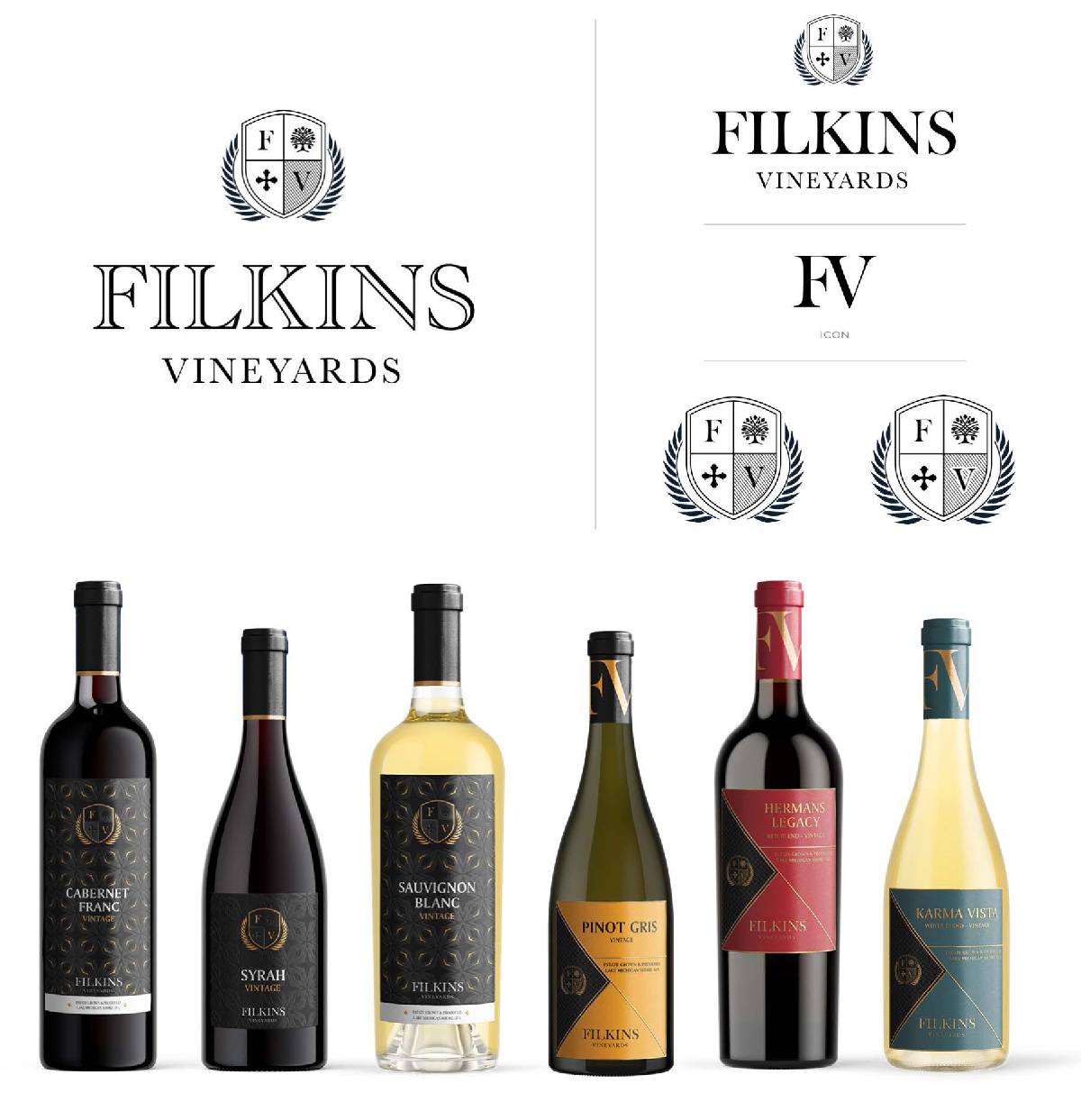
DEG 410: Internship & Entrepreneurship - 3 Credits
To get your foot in the door in the design field, experience matters. In this industry-focused class, you will engage with a professional client or employer in your local area and expand your experience in the field, with the benefit of the insightful support of your instructor. Working for a real client or employer will provide you an opportunity to hone your problem-solving, client communication, and project management skills, creating a business solution(s) that will stand out in your portfolio and on your resume.

GEN 401: Accounting for Creatives - 3 Credits
Any creative who wants to establish a freelance career or succeed in business will benefit from a basic understanding of accounting. This course includes a focus on basic accounting principles and how they can be applied within the context of a small creative business. You will explore and identify how to use Generally Accepted Accounting Principles (GAAP), ledgers and journals, and how to follow and apply accounting strategies and cycles when running a creative focused business. Additionally, this course provides an introduction to balance sheets, financial statements, assets and liabilities, and equity, as well as an exploration of business ethics.
Final Semester
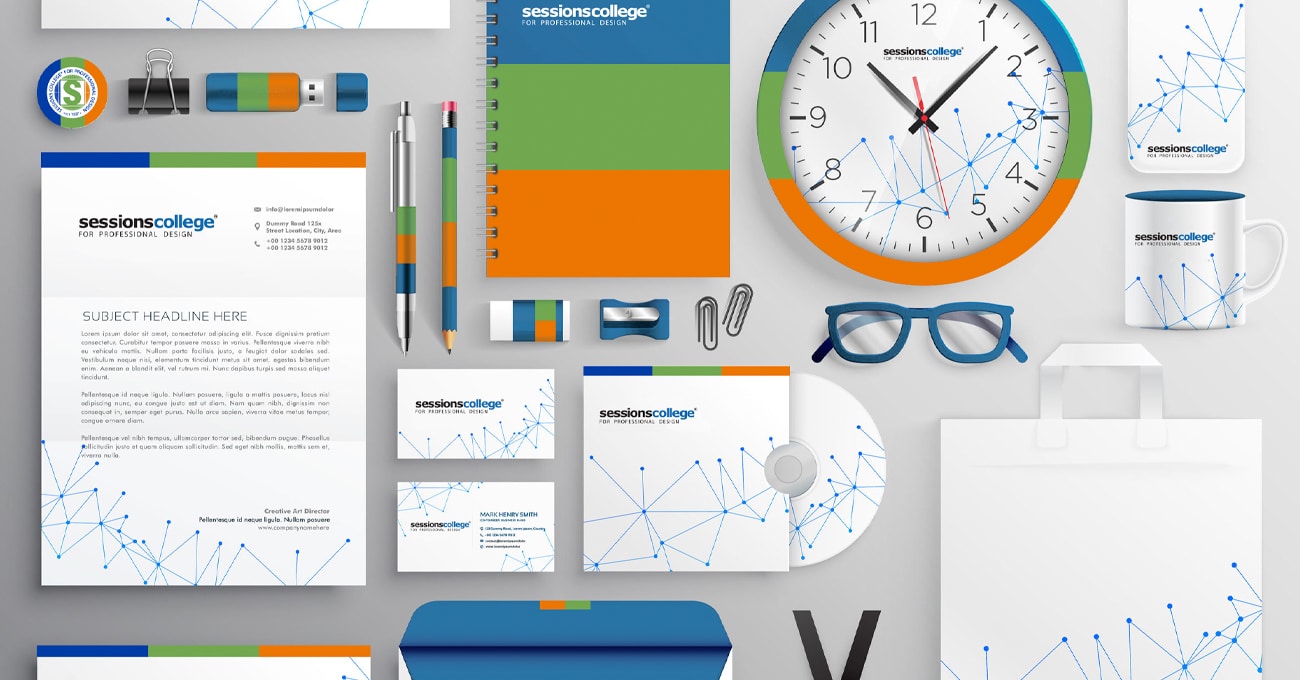
DEG 344: Professional Practices - 3 Credits
During this class you will develop and/or enhance your business forms and collateral materials for your photography, illustration, and design business based upon industry standards and best practices. In preparation for running your own creative services business, you will also create a business plan and marketing plan as you explore an ethical and scalable business philosophy. You will focus on networking with fellow creatives through local industry organizations and/or respected creative work sharing sites and implement your internship outreach plan in preparation for the DEG 410 Internship and Entrepreneurship.
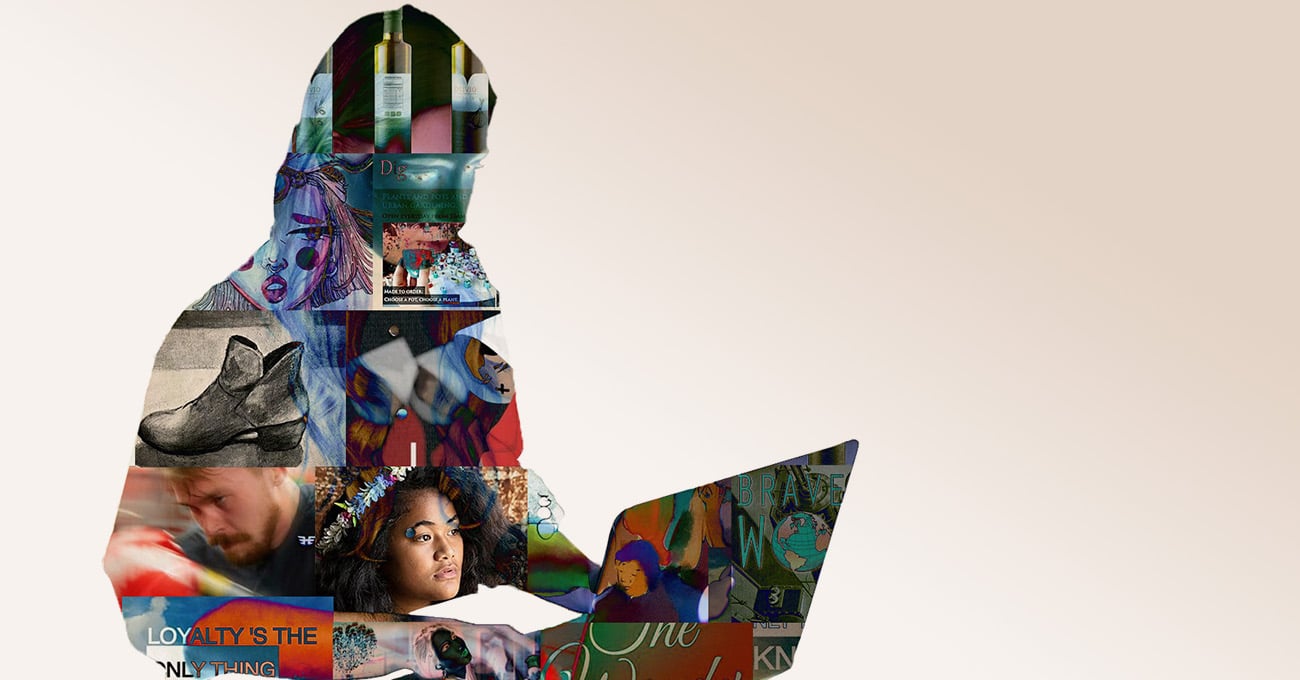
DEG 460: BFA Portfolio - 3 Credits
In this class, you will finalize your portfolio, business materials, and resume, in preparation for pursuing or advancing your design career. Working with your instructor, you will hone your BFA-level projects into a persuasive presentation of final work. The course structure includes the opportunity to enhance your portfolio as well as demonstrate your ability to effectively communicate the depth of your creative and technical skills, critical thinking and problem-solving abilities, work ethic, and passion for developing impactful and compelling professional work.

ELE 405: BFA Elective - 3 Credits
Choose a free elective from a wide range of courses.
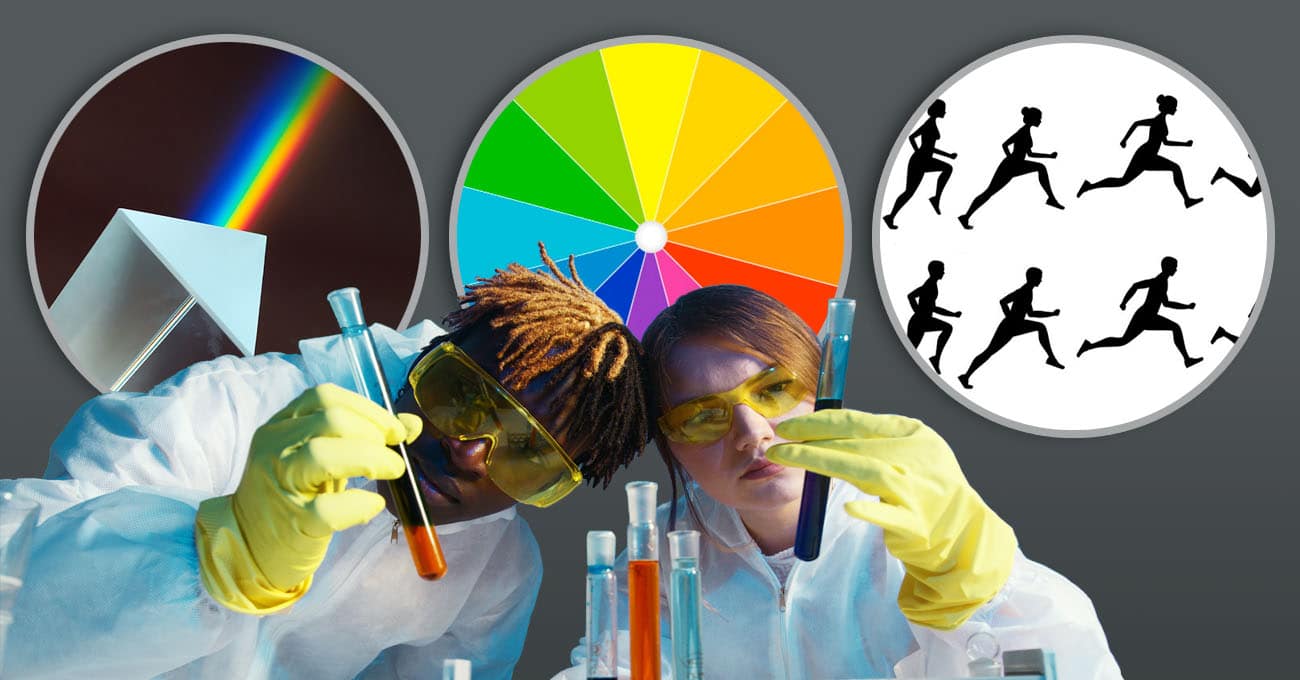
GEN 410: Science of Light, Color & Motion - 3 Credits
Any creative professional—artist, designer, or photographer—creates artwork, images, or animations in a natural world that is governed by the laws of physics. In this introductory science class, students will explore and apply scientific principles that are fundamental to visual perception. Students will learn the scientific basis of key concepts in light, color, and motion, explore research methods to discover how they work, and express this scientific knowledge in their creative work. Students will graduate the course with a solid understanding of how scientific theories, research, and experimental methodology are applied, building a foundation for future learning.
Students must complete 54 credits of Art/Design coursework and 18 credits of General Education. (DES = Design, PHO = Photography, WEB = Web, DIG = Digital Media, ILL = Illustration, DEG = Degree, FLM = Filmmaking, GEN = General Education)
* Elective course requirement may be fulfilled by any lower level 3-credit course, subject to availability and prerequisites.
Program Outcomes
By completing the program, Bachelor's Degree in Illustration students develop the following competencies:
Drawing and Painting
Draw and paint utilizing traditional media and classic techniques, demonstrating a command of proportion, perspective, value contrast, and the human figure. Effectively combine media and image-making techniques in order to produce professional pieces of creative work.
Illustration
Conceptualize, create and finalize illustrations for a range of commercial applications in traditional or digital media in alignment with creative briefs. Demonstrate knowledge of illustration history, visual storytelling, typography, industry trends, and other means of visual communication.
Technology
Create images and graphics by effectively and efficiently using creative software including Adobe Photoshop, Illustrator, as well as other industry and web-based technologies.
Art/Design Principles
Employ and present the ability to create quality work by exploring and experimenting with the use of color, visual hierarchy/organization, concept development, typography, composition, and other art/design principles.
Research, History, Criticism
Analyze, evaluate, and synthesize historical concepts and artistic styles, effectively communicate and defend aesthetic ideas based upon research, critically evaluate the work of multiple illustrators and fine artists as well as consideration of the influence of illustration on art, design, and culture. Consider research as well as context when producing your innovative work.
Portfolio
Conceive, produce, and present a cohesive body of work by synthesizing technical expertise, art/design principles and employing critical thinking and creative problem solving, in response to constructive feedback and critiques. Portfolio pieces display professional design aesthetic and concepts aligned with the student’s career and creative goals.
Critical Thinking, Communication, and Writing
Employ critical thinking and information literacy to generate, support, evaluate, and convey ideas through writing and oral communication for academic or professional contexts while considering divergent perspectives, cultural framing, historical context, research, and ethical concerns.
Professional Practice and Readiness
Construct and present a professional perspective by exploring the impact of culture and organizational behavior, practice timely production of well-conceived work, cultivate an elevated attention to detail, fulfill creative briefs, accept constructive feedback, demonstrate adaptability, and clearly communicate ideas.
About Sessions College
Sessions College has been inspiring creative professionals for 25 years. Accredited since 2001, we have a unique and proven approach to online education.
![]()
Accredited by Distance Education Accrediting Commission since 2001
![]()
Recognized as top design school by GDUSA
![]()
Winner of four USDLA awards for distance education
Bachelor's Degree in Illustration – Student Experience
The online Bachelor’s Degree in illustration program at Sessions College inspires students to advance their creative careers by developing work for a global audience that is aligned with their future career goals.

Build a Foundation in Relevant Skills.
During the first two years of the online Illustration Degree BFA program, you’ll establish a strong foundation in the technical, design, and critical thinking skills required by employers in creative industries. No textbooks required; you will learn by applying current art, design, and software skills to a wide range of projects.
Customize Your Creative Path.
Our BFA is focused on helping you achieve your creative ambitions. In year three, working closely with our faculty, you’ll develop a customized educational plan to help you craft a portfolio of work to achieve your personal or professional goals. Adapt your classes by working on projects that inspire you and advance your career.
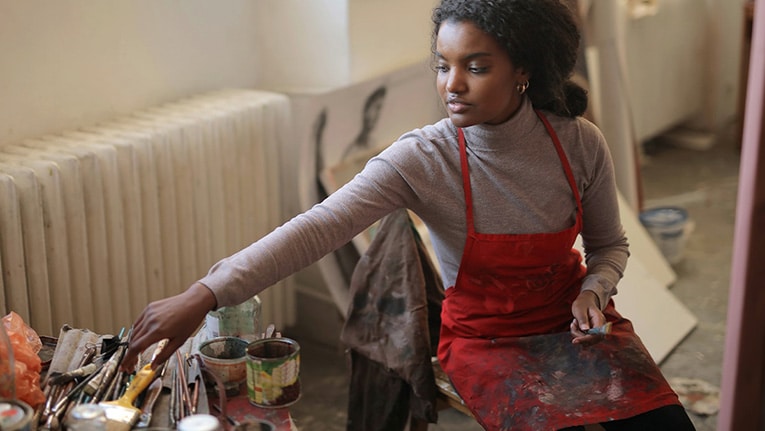

Focus on Research and Presentation.
The Online Illustration Degree Bachelor's program features courses with an upper level, highly structured context for students to deepen their research, illustration, and presentation skills. Mentored by experienced faculty, you will delve deeper into your projects, and develop the communication skills to ace your client interviews.
Experience Real-World Applications.
Study professional practices and gain invaluable work experience with a real client or employer, as part of your program. Discover how to market and monetize your work in interactive media and accounting classes.


Be Industry Ready.
Employers are looking for problem solvers and adaptable professionals. Throughout the program, you’ll access industry-relevant opportunities to develop and advance your proficiency in critical thinking, problem solving, and communication.
Build a Professional Portfolio.
The program is relentlessly focused on helping you generate compelling creative work. Your final BFA portfolio and exhibition will speak for itself, helping you express your passions and talents in pursuit of your desired career path.

Student Work
Student Work
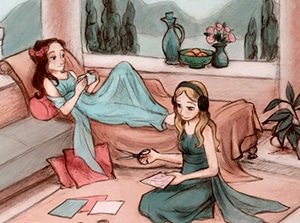
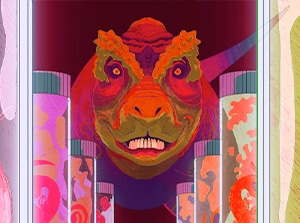

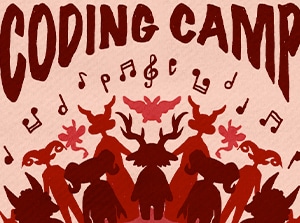

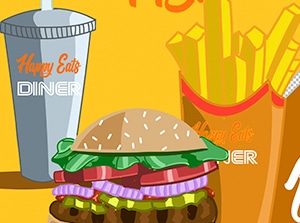



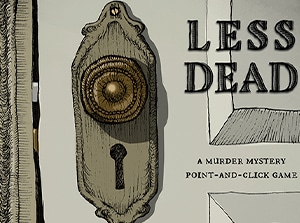


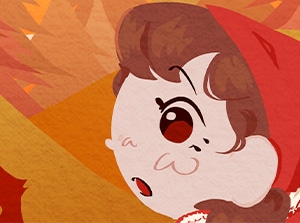

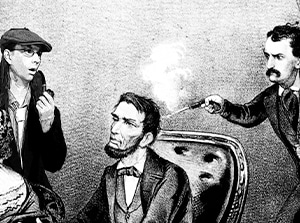
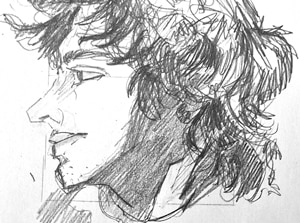

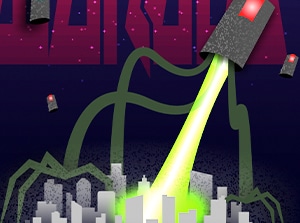

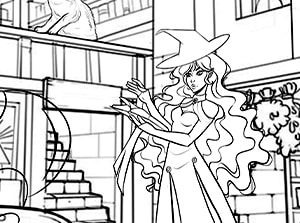
BFA Faculty

Jordon Schranz, Department Head of Illustration
Jordon Schranz is an audio/visual artist and designer whose work has been exhibited internationally in New York, Chicago, El Paso, Berlin, Bogotá, and Ciudad Juárez. In addition he has performed hundreds of shows across the United States as part of the free jazz trio, "The Eastern Seaboard" and in the avant-rock group "Quivers" with Ninni Morgia, including New York, Philadelphia, San Francisco, Chicago, Atlanta, and Detroit. Jordon has an MFA in Combined Media from the City University of New York
and a BFA in Painting, Maryland Institute College of Art.
Anne Catharine Blake, Illustration Faculty
Anne Catharine Blake has over fourteen years of teaching illustration and design online, including curriculum development and mentoring faculty. In addition to teaching, she continues to work as a freelance author/illustrator/designer and exhibits her work regularly. Her work has been published in the US, UK, Europe, and translated into Spanish and Chinese. Her illustrations and sketchbooks have been exhibited in New York, Chicago, Atlanta, Canada, England, and France. Some of her papers are housed at the de Grummond Children’s Literature Collection at the University of Southern Mississippi.

BFA Program At a Glance
Earn a BFA
The #1 credential for creatives.
100% Online
Flexible program designed for adult learners.
Under 4 years
Graduate in less than 4 years.
1to1 Faculty Feedback
Learn from creative professionals.
Study At Your Own Pace
Full and part-time schedules available.
$300/Credit Tuition
Recognized for affordability.

Career Outlook for Illustrators
Illustrators produce a wide range creative work for a myriad of industries including illustrating for editorial, books, concept art for games and animation, technical and medical illustration, advertising, logo design, packaging, cartoons, digital art, and more. Illustrators need to demonstrate technical expertise, artistic ability, business skills, creativity, customer-service skills, dexterity, and interpersonal skills.
Exciting Job Opportunities
Graduates could be employed as Editorial Illustrator, Children’s Book Illustrator, Concept Artist for Games and Animation, Technical and Medical Illustrator, Product Design and Licensing, Freelance Illustrator, Production Artist, Graphic Designer, Assistant Designer, Concept Artist, and User Experience (UX) Designer.
Median Annual Wage and Income Potential
According to the Federal Bureau of Labor Statistics the median annual wage* for craft and fine artists including illustrators was $59,300.
In May 2023, the median annual wages for craft and fine artists including illustrators in these top industries they work within:
| Federal government, excluding postal service | $105,640 |
| Motion picture and sound recording industries | $95,970 |
| Personal care services | $49,170 |
| Independent artists, writers, and performers | $45,970 |
Largest Areas of Employment
Employment opportunities for craft and fine artists including illustrators (by percentage) were as follows:
| Self-employed workers | 55% |
| Independent artists, writer, and performers | 9% |
| Federal government, excluding postal service | 6% |
| Motion picture and sound recording industries | 4% |
| Personal care services | 3% |
Job Projections and Employment Trends
Employment opportunities for illustrators are projected to grow 4 percent from 2022 to 2032.
There are about 5,500 projected openings for craft and fine artists including illustrators each year, on average, over the decade.
Based on Federal Bureau of Labor Statistics and Indeed Job Outlook data.
Learn More
Based on Federal Bureau of Labor Statistics and Indeed Job Outlook data.
To learn more about this field, visit: New York Foundation for the Arts. For information about careers in medical illustration, visit Association of Medical Illustrators.
For information about grant-funding programs and other local resources for artists, contact your state arts agency. A list of these agencies is available from the National Assembly of State Arts Agencies. For more information about how the federal government awards grants for art, visit National Endowment for the Arts.
Truly Affordable Education
Our tuition is:
50% lower than the average annual cost of tuition at 4-year colleges in the United States.
Significantly more affordable than other online design / digital media colleges.
So affordable that 100% of tuition costs may be covered for eligible students.* Find out today if you qualify.
*Federal student aid and military education benefits available for eligible students.

Frequently Asked Questions
Our online application process makes getting started easy, fast, and convenient.
What is the difference between a BFA and a BA?
The Bachelor of Fine Arts (BFA) degree is generally considered to be the most prestigious, professionally oriented bachelor's degree in the visual arts.
- In a Bachelor of Fine Arts (BFA) degree program, you are generally required to complete at least 65% of courses in your art/design major subject, and no more than 35% in general education. In the Sessions College BFA, 75% of the coursework is focused on your art/design studies.
- In a Bachelor of Arts (BA) program, you are generally required to complete up to 50% of courses in general education, with a lower percentage in your art/design major. The focus of a BA is to provide a well-rounded education.
For more information on the difference between a BA and a BFA, view this GDUSA article about benefits of getting a BFA.
What makes the Sessions College BFA online Illustration Degree program distinctive?
Simply, the program is the most affordable, accessible, and portfolio-focused online Bachelor's Degree in Graphic Design available.
- Affordable. Our $510/credit tuition is up to 200% lower than competitor programs, so you can graduate with a minimum of loan debt.
- Accessible. Designed for busy adults with weekly deadlines but no set login times, you can complete the program from anywhere in the world, studying full-time or part-time. More than 50% of degree students complete programs while employed.
- Portfolio-Focused. Build a solid art/design foundation, then customize your advanced level classes around your portfolio goals. Faculty mentoring will help you hone your final BFA portfolio to achieve YOUR creative career goals.
How Long Does the Program Take to Complete?
Most Bachelor’s Degree programs take four years to complete. You can complete our BFA in Illustration program in 10 semesters or 3.3 years—and sooner if you have credit transfer. With our intensive program, you can graduate faster and get started sooner with your career goals.
Is the Tuition Affordable?
Truly Affordable Tuition. We are committed to making the highest-quality design and digital media education available at the lowest cost.
Our truly affordable tuition is:
| Bachelor of Fine Arts (BFA) Program - Fall 2024 Tuition |
|---|
| $300 per credit |
| $3,600 per semester |
| $7,200 per academic year |
| $36,000 total program tuition |
Per-credit tuition is the same full-time and part-time students. Federal financial aid available for eligible students. Ask about our $500-$3,000 scholarships for exemplary applicants.
A $200 registration fee is required to process your enrollment in the program. Registration fees are nonrefundable after 5 days from the scheduled beginning of program orientation. See Degree Program Admissions.
What software and/or supplies do I need?
To take this program, you’ll need the following:
- Mac or Windows computer with an Internet connection.
- Adobe Photoshop and Illustrator Creative Cloud software.
- Your computer must meet software manufacturer requirements.
- Basic drawing and painting supplies including pencils, charcoal, newsprint, and sketch paper.
- Digital camera that offers manual control over aperture, shutter speed, ISO and white balance.
- MS word or equivalent application.
- Webcam, headphones or speaker, VPN connection, and microphone connected to the computer for live proctored exams.
There are no textbook or course material costs to participate in this online program. Student discount on Adobe Creative Cloud software is available to enrolled students.
Is Sessions College Accredited?
Yes. Since 2001, Sessions College has been accredited by the Distance Education Accrediting Commission (DEAC). The Distance Education Accrediting Commission (DEAC) is a private, non-profit organization founded in 1926 that operates as an institutional accreditor of distance education institutions. The Distance Education Accrediting Commission is listed by the U.S. Department of Education as a recognized accrediting agency and is recognized by the Council for Higher Education Accreditation (CHEA).
What is the Admissions Process?
To enter the program you are expected to have earned a high school diploma, GED, or state-approved home school equivalent. Any students under 18 years of age will also need to provide the signed permission of a parent or guardian.
We have a convenient and student-friendly online application process. Simply complete our program application form and provide transcripts, an application essay, and 5-10 samples or art/design work or alternative written assignment, and a $75 application fee. See our complete application guide and credit transfer policy.
Applications are reviewed by our Acceptance Committee and generally returned within a business week.
You can begin your creative journey by completing our online application today. There is no charge until you submit your application materials and no obligation to enroll.
What Else Do I Need to Do?
All candidates are expected to complete a 15-minute phone or Zoom interview with one of our Admissions advisors. These talented, friendly professionals will explain the program options, answer your questions, and get you started with your financial aid process, if you are eligible.
Get Started Today
Take the first step on a rewarding creative journey towards earning a BFA in Illustration.
By submitting this form, you consent to an Admissions Advisor contacting you about our educational programs via email, phone, or SMS text. Message & data rates may apply. You can opt out or unsubscribe at any time. Privacy Policy.





















